In this in-depth interview, Eric Largeron, the elected official in charge of padel within the French Tennis Federation, looks back on the challenges and opportunities that the padel meeting in France. It sheds light on various subjects such as the evolution of padel, the growing number of licensees, the issues surrounding the development of structures and future projects in terms of tournaments and infrastructures.
110 to 000 licensees practice padel in France
It was the first year of implementation of the license padel at €20 and we ended up with 38 licensees, knowing that there are a lot of multi-racquet licensees who practice padel, or ultimately between 110 and 130 licensees. We obtained this figure by cross-checking the classification, the licenses and the number of times the person put the padel in priority on his Ten'up account.
The positive point is the boom in the practice, the explosion in the number of new structures. So maybe other countries are doing better and faster, but I understand that some nations are struggling because of too rapid development. The FFT has opted for a controlled increase. There is both the opening of new private structures, essentially padel, but also the construction of tracks in tennis clubs.
The development of padel is exponential. This is the word that I use very often with the increase in the number of tournaments, the enthusiasm around this sport with the appearance of international TV broadcasters like Canal+, Bein Sport… The positive points are therefore very positive.

Construction price inflation is scandalous
Price inflation linked to the construction of ski slopes padel is scandalous. I say it: this hyperinflation does not always seem to me to be connected to reality. But today, we know, the demand is very high and obviously if the promoters and clubs accept, it is the law of supply and demand.
Today we are on tracks of padel much more expensive than a tennis court, so it is not satisfactory. The price being a brake, this indirectly limits the development of the padel. That is to say that a private individual is not necessarily going to invest willy-nilly. And tennis clubs don't necessarily have the opportunity to invest either (town halls do it less and less), even if they are much more supported. And it's true that the National Sports Agency has greatly facilitated the acquisition of certain tracks in certain places, but they are not the only ones.
The insufficient number of young people
One of the negative points is the insufficient number of young people we supervise in this sport. The reasons are multiple. I completely understand that a school of padel Saturday mornings on three-hour slots lose more lucrative rentals. Sponsorship has its limits and an owner of private structures must find the right balance. Because private individuals must also make a living from it. So it's complicated. On Wednesday after 12 p.m., it still passes a little because the hours are slower. However, we do not necessarily have leaders or managers of padel who go out of schools with a flyer saying: “come and let your child play”, as we do for example for tennis, football or rugby, but I am sure that with time it will come.
The second negative point is the ladies. The ladies/gentlemen ratio is 15% – 85%. We therefore understand that there is a lot of work to be done at this level to try to achieve balance. However, I think that the figures are a little distorted to the extent that I am certain that the ladies go less towards competition, so the licensing is random.
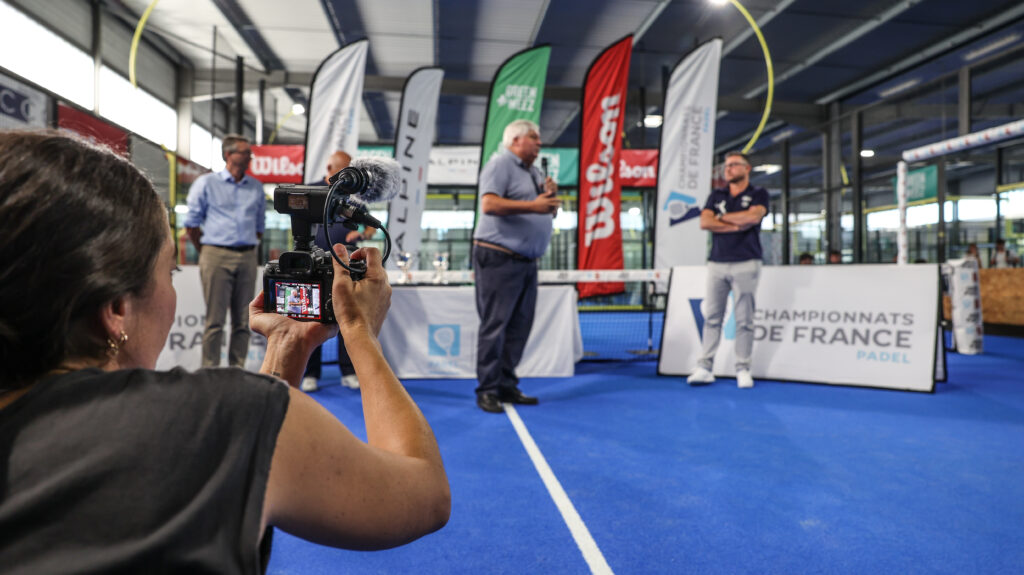
Are private structures helped?
Private structures that choose to have an association are not helped with creation. However, when they add two or four avenues to increase their activity, we are there. On the other hand, I tell the clubs in Occitanie which are strictly private not to do anything: the association must be distinct because it will manage the federal part of the structure..
The Federation is therefore very present to help private individuals, but we must try to correct some abuses. On the other hand, yes it is true that a tennis club which wants to make two tennis courts padel is helped from the start, but the private sector, on the other hand, builds, makes its business plan and if it sets up an association, it can subsequently be helped in the development of its activity.
The GPM is for the moment a loss-making competition, but not for long…
When Gilles Moretton chose to launch the G3PM at the time, it was because he understood like all of us that the padel was a sport of the future. It wasn't just a fashion statement. It was also important to weigh in on the very complex global arena of this sport. We had to have a big event.
And so the big event is to hit hard from the start with padel at Roland Garros. So here is the first edition in 2022. We knew that it would be at a loss (around two million euros). The second will undoubtedly still be slightly deficit. But from the third edition and therefore next year, the balance is planned to then do like Roland-Garros tennis: profits which will fuel the padel French.
So, despite the fact that there are additional costs that we fully assume such as the appearance of the girls, it was necessary. Despite these additional costs, we were able to organize this event much earlier, much further in advance, with much more anticipation. And so the anticipation made it possible to have a larger number of partners because we are still among the tennis partners, both for the Roland-Garros tournament and for the entire federation.
So then, you have to include partners padel. However, some of our partners have nothing to do with the padel, but others do. We had to work on all that, and I take my hat off to Arnaud Di Pasquale, for whom this was one of the main missions. We have therefore considerably expanded our partner network. And even if at the start of the week, it wasn't really visible, the filling of the stands, and therefore the ticket office, also responded very favorably to our hopes.
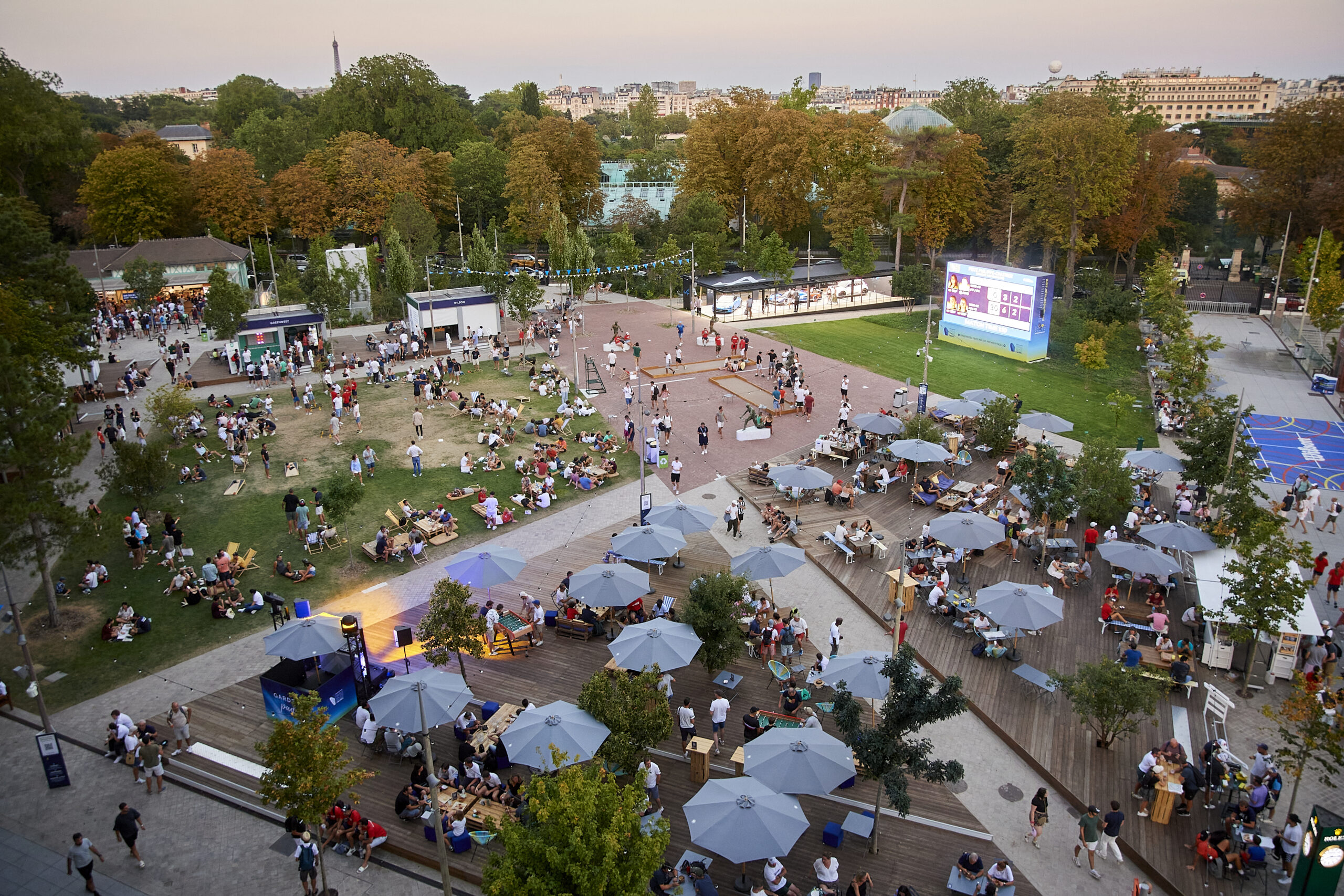
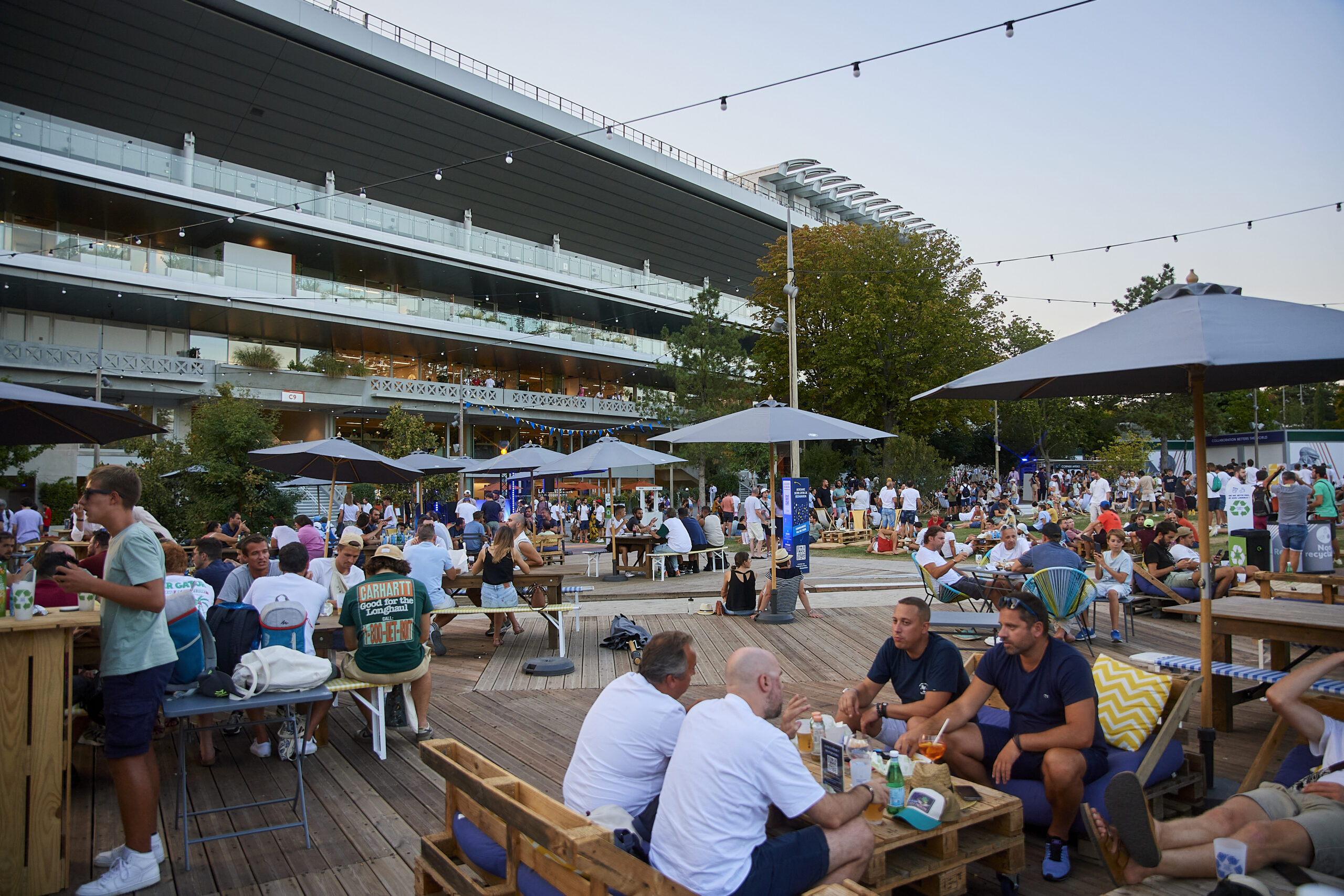
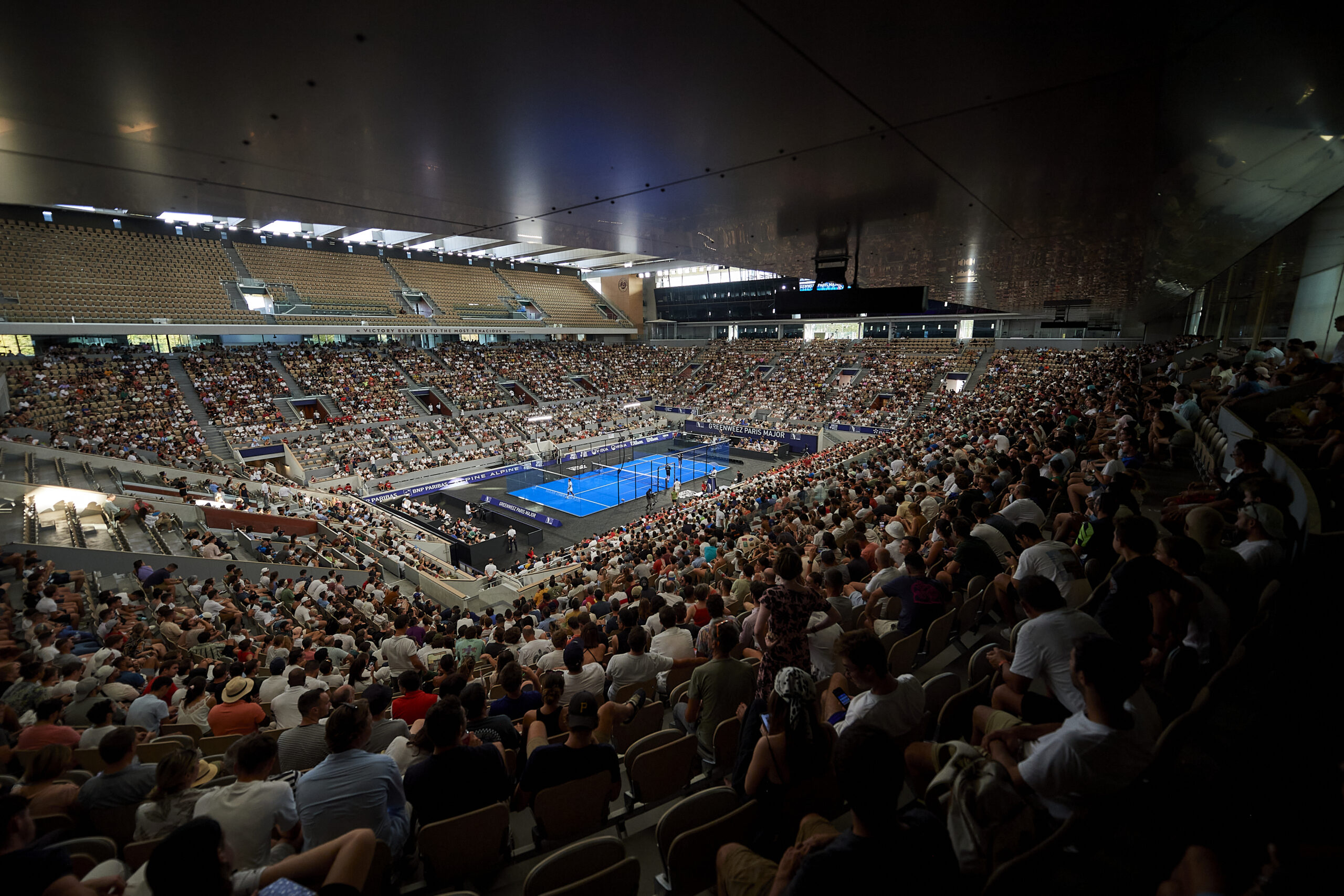
GPM dates will be changed
The dates of the 2024 GPM will not be the same for a very simple reason: the Olympic and Paralympic Games, and the Olympic Organizing Committee will manage the Roland-Garros stadium site until mid-September. For the moment, we are in full reflection, but the last week of September seems to be the preferred track to host this great tournament again.
“We cannot afford to have just one indoor track at the next GPM”
At the end of September, the risk of rain must obviously be taken into account. We are fortunate to have superb infrastructures which could accommodate several tracks of padel indoor.
The idea is to figure out how things might turn out. You talked about putting two tracks of padel on the Philippe-Chatrier which is covered, and to make the Court Suzanne-Lenglen (also covered), the central track with its almost 10 seats. It's clearly a good idea and I understand what you're saying, but there will also be obstacles.
For example, the center of Roland-Garros, symbolically, is Philippe-Chatrier. Would we be willing to put two tracks of padel on this short history and therefore a track on the Suzanne-Lenglen? And we must think of the village, of the Place des Mousquetaires transformed into a tavern and of the spirit that we wish to instill in this event. Is putting the central track on the Suzanne-Lenglen compatible with the spirit of the tournament? For the moment, everything is under consideration and nothing has yet been decided on the form that the next GPM will take. But one thing is certain, we will need several avenues of padel indoor. We cannot afford to play on one or two indoor tracks in 2024.
“A French event during the GPM, to forget? »
First, know that I had proposed for the 2022 edition, a particular tournament during the GPM which was only for men. I had imagined a super feminine P3000. But it couldn't happen and I now understand why.
Spectators come for an international tournament that is perhaps the biggest tournament in the world. Putting a French tournament at the same time, on a side field, is not necessarily terrible. There could even be confusion among spectators who are not always up to date with current events. padel. So in my opinion, even if I hear some players hoping for a French event during the GPM, I don't think it should be done.
On the other hand, the French Championships at Roland-Garros, either before or after the GPM, why not. This could be food for thought. There is a timing problem and therefore that means that we do not necessarily have a lot of choice, which complicates things. I also really respect these French Championships. I think I showed it this weekend.
The idea of taking advantage of the installation of the GPM to put the French Championship in the wake or before, is to be studied. I'm not sure 2024 is the best possible year to do this. But again, this is eventually studied. On the other hand, what I can tell you is that the next Championships will not take place in Toulouse, because several other large structures have emerged, which gives a lot of possibilities.
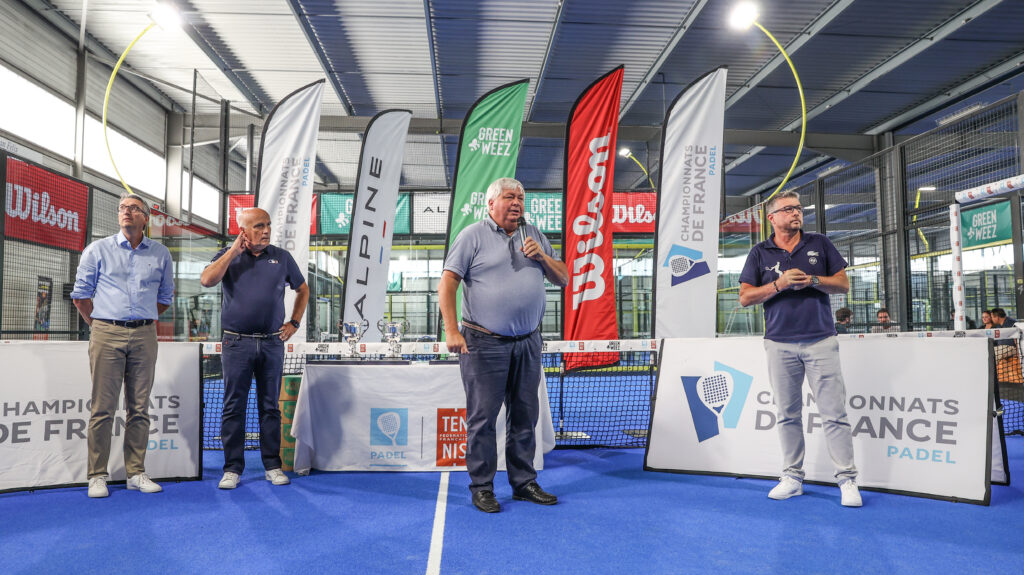
Prize money removed in the P500?
For the moment, we are staying on the P25, P100 and P250 for the “leisure” and “beginner” events. We will not add a new category with the P50. If tomorrow we continue to have more and more players, more beginners, perhaps this track will be reactivated.
But the idea is not to create a category every year either. On the other hand, today we saw far too many P250s, and especially not enough P500s. This is why the prize money may be removed or revised for the P500 to allow clubs to do more. In any case the National Council of Padel works there. And there may be changes at this level in the next competition guide.
In spirit, the idea is to avoid having players who only travel for the prize money, for example. The P500 must therefore be more accessible. But if we see that there are no more P1000s because we make a P500 which still brings 500 points, I think we will have to correct things. The problem at padel, is that we think, we make a decision and this decision is almost obsolete by the time we apply it because if initially it is to correct, sometimes it can create a new problem. We had removed the prize money in P250 to especially encourage this type of event among the ladies. Even if I understand it, among the men, it was less necessary and we saw a transfer from the P100 tournament to the P250.
But at the FFT, there is really this ambition to do things in a balanced way between the players. The idea of the P500 is also to prevent a club from saying, “ah damn, the club a few minutes from my house is doing a P250 so I can't do a P250. This one could therefore make a P500 more easily.” On the other hand, I remind you that for a P500, there is a cut so not everyone will be able to participate. Finally, to make a P500, you have to be a non-player JAP2 and not a JAP 1, even if I am perfectly aware of the workaround, namely that we are going to use straw JAP 2s for a P500. But the cut in the P500 is important and will allow this event to be maintained as a first real category which is aimed at more regular, more trained players.
“The FFT could evolve towards No-Ad if…”
For the moment, the advantage AND the decisive point exist in France. And it is often the organizers who choose the format according to the category and the need. However, things can change.
The Word Padel Tour and FIP use the deciding point, unlike Majors and national competitions. However the golden point has gained ground, and if tomorrow Premier Padel changed for this system, then the FFT could align.
Coaching for all categories, possible?
For the moment no, for many reasons. And the main reason is that I fear it's a bad idea. If tomorrow the friend can come and coach any pair, this could generate not only a certain disorganization in the tournament, but perhaps even a form of inequality between the pairs who come with a coach and others who do not.
Finally for the smallest categories, the idea is to keep this freshness. To finish, the padel is also a sport where you can chat with your partner during side changes, without absolutely having a coach with you. I'm not necessarily saying I'm against it, but it's not a priority at the moment.
Finally to finish, I would like to congratulate the team padel within the FFT which does a lot of work. And today, undeniably, the work pays off with tests going very well.
Franck Binisti discovers the padel at the Club des Pyramides in 2009 in the Paris region. Since padel is part of his life. You often see him touring France going to cover the major events of padel French.

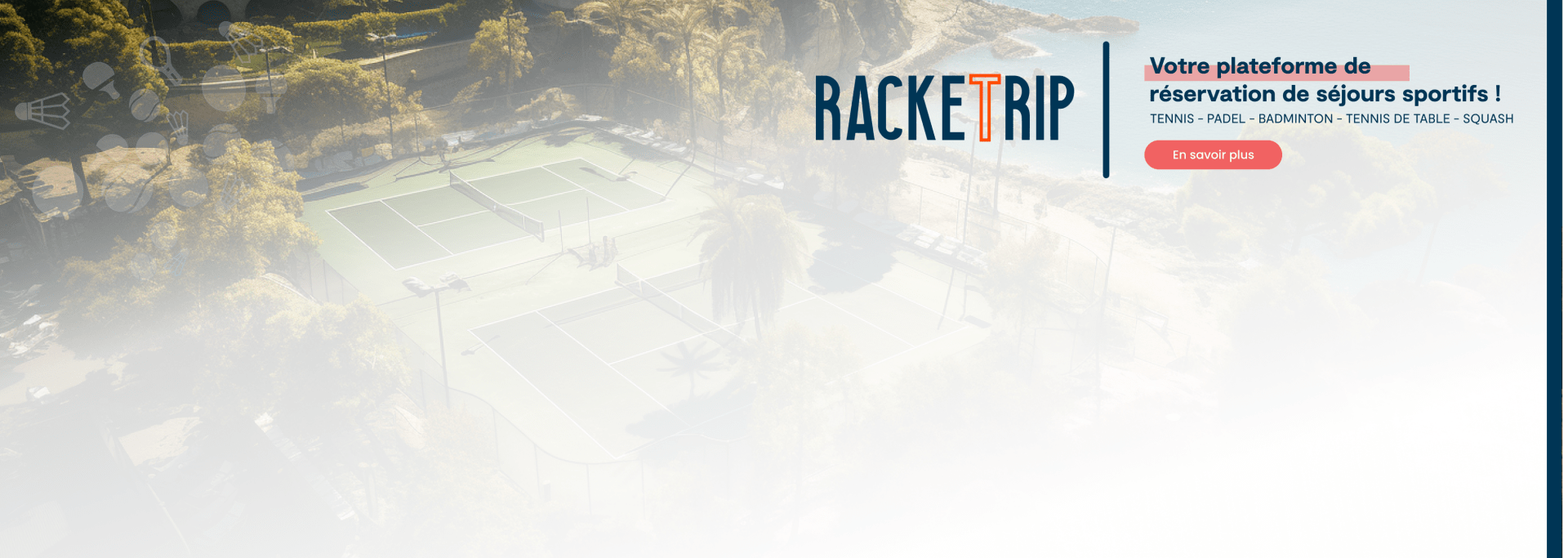


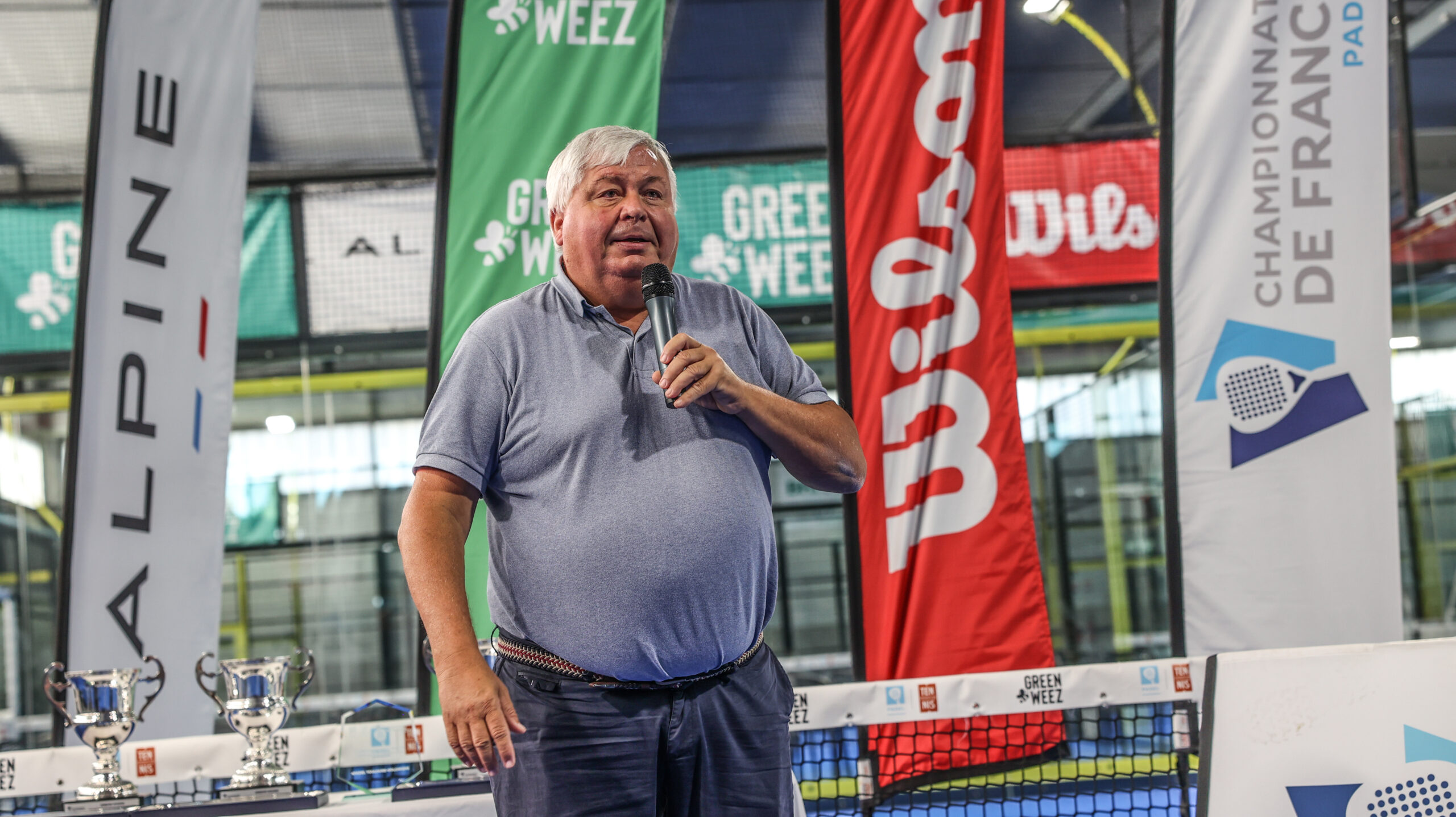


















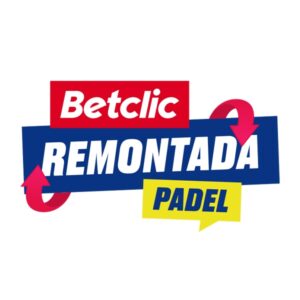






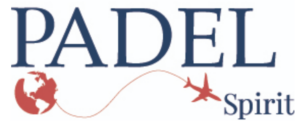
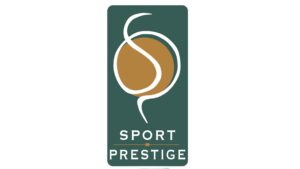
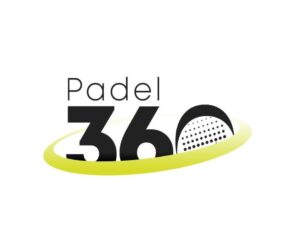
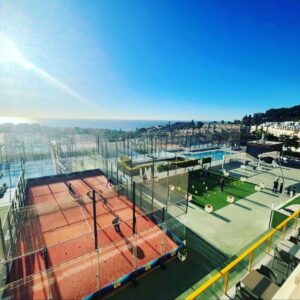




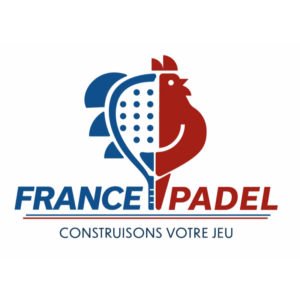




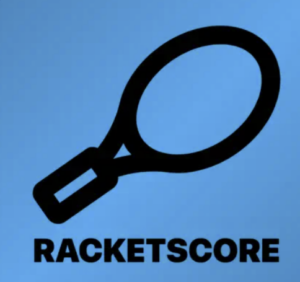
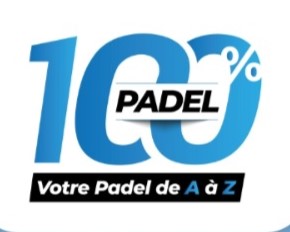


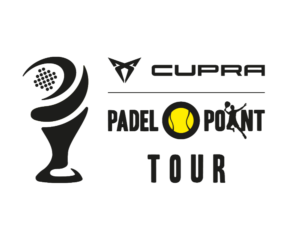

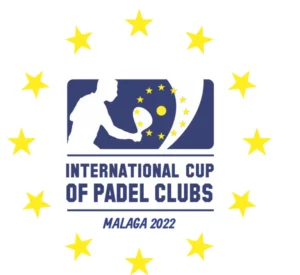




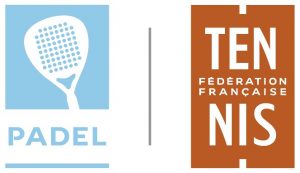


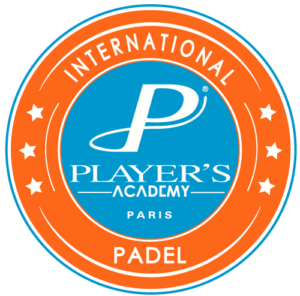

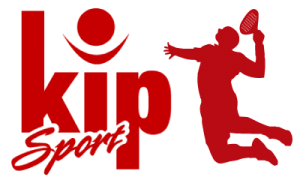





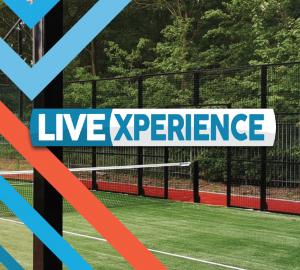


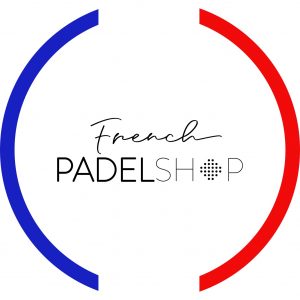
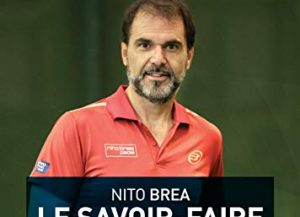
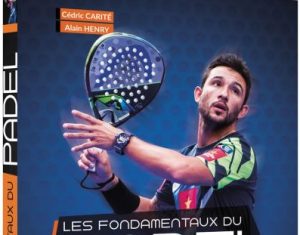


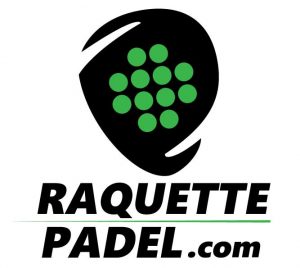
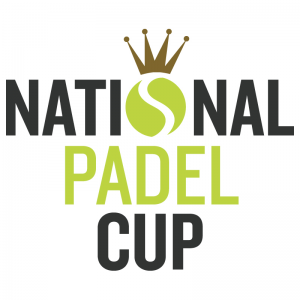
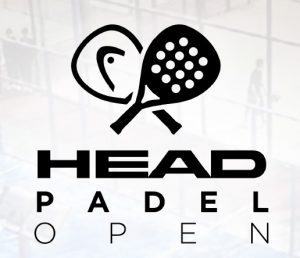





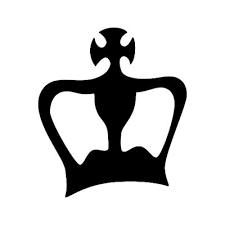
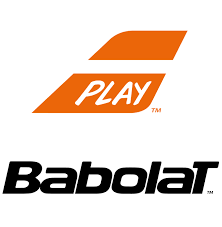

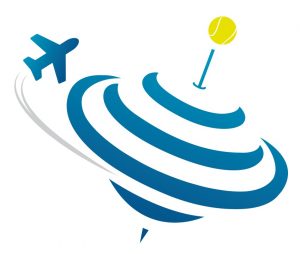
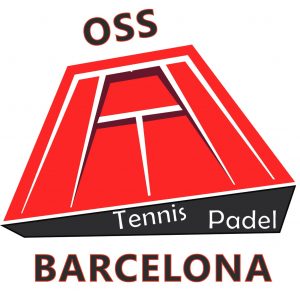
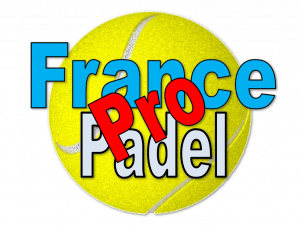

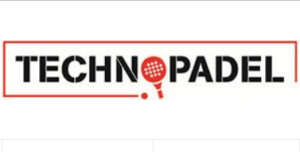
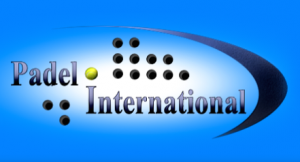

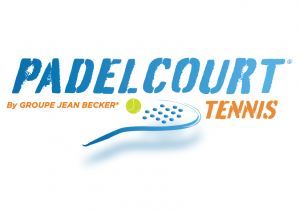

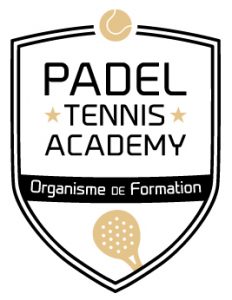
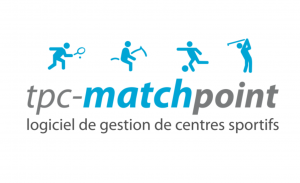

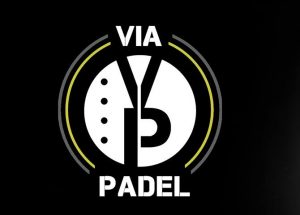




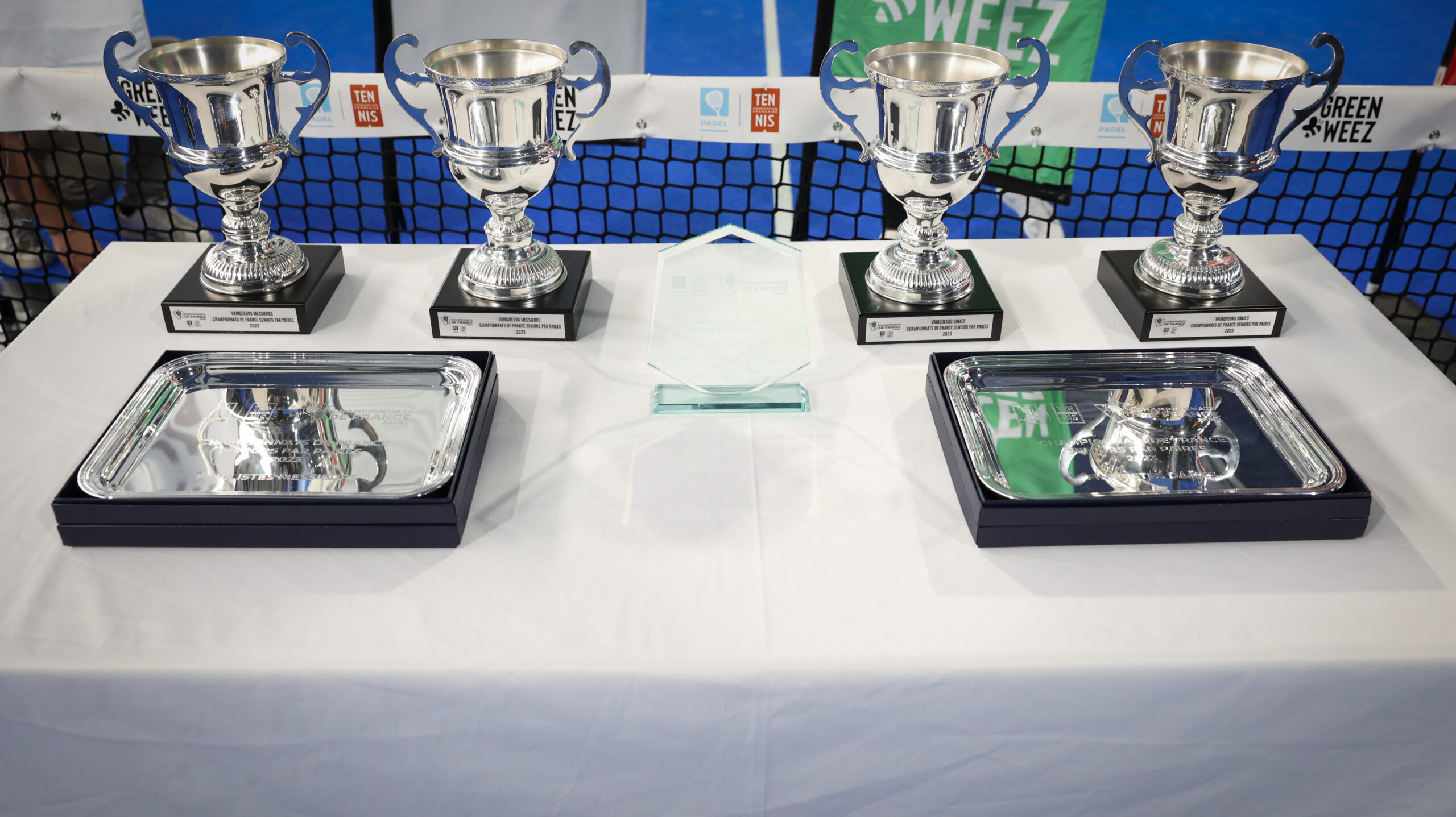 The results of the French Championships padel in pairs
The results of the French Championships padel in pairs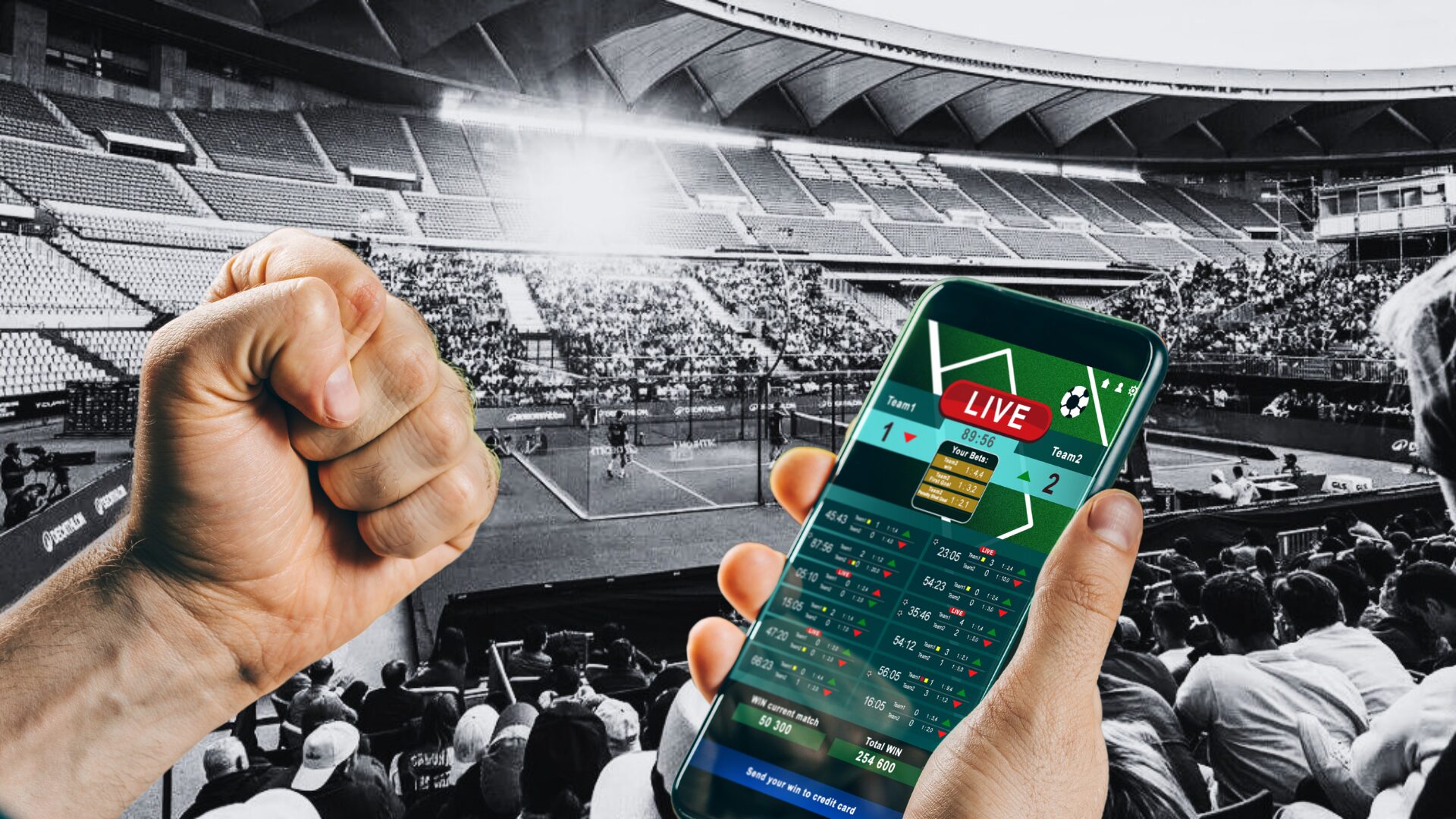 Bet on the padel, soon a reality in France?
Bet on the padel, soon a reality in France?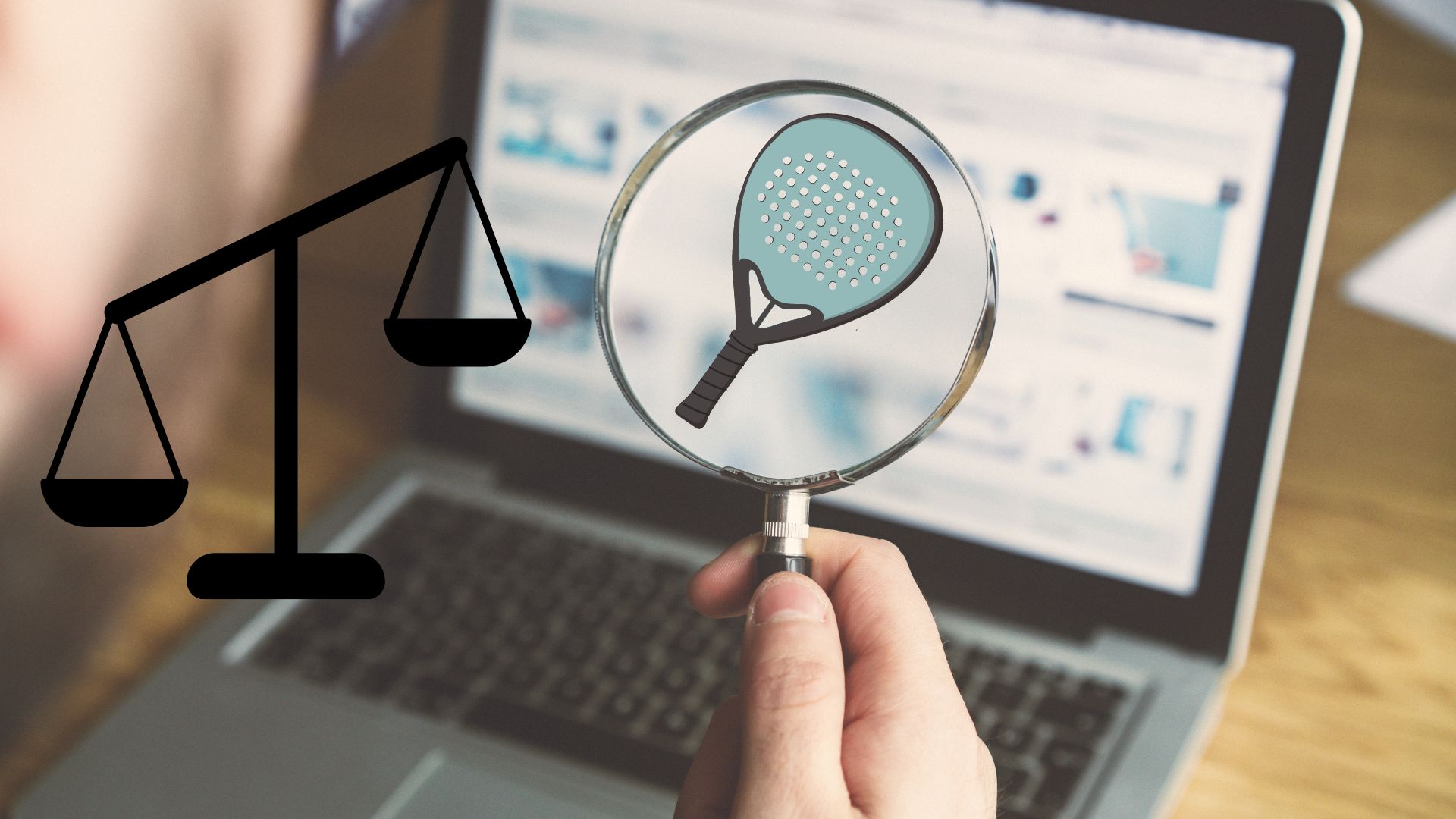 Market padel : the dangerous imbalance between supply and demand
Market padel : the dangerous imbalance between supply and demand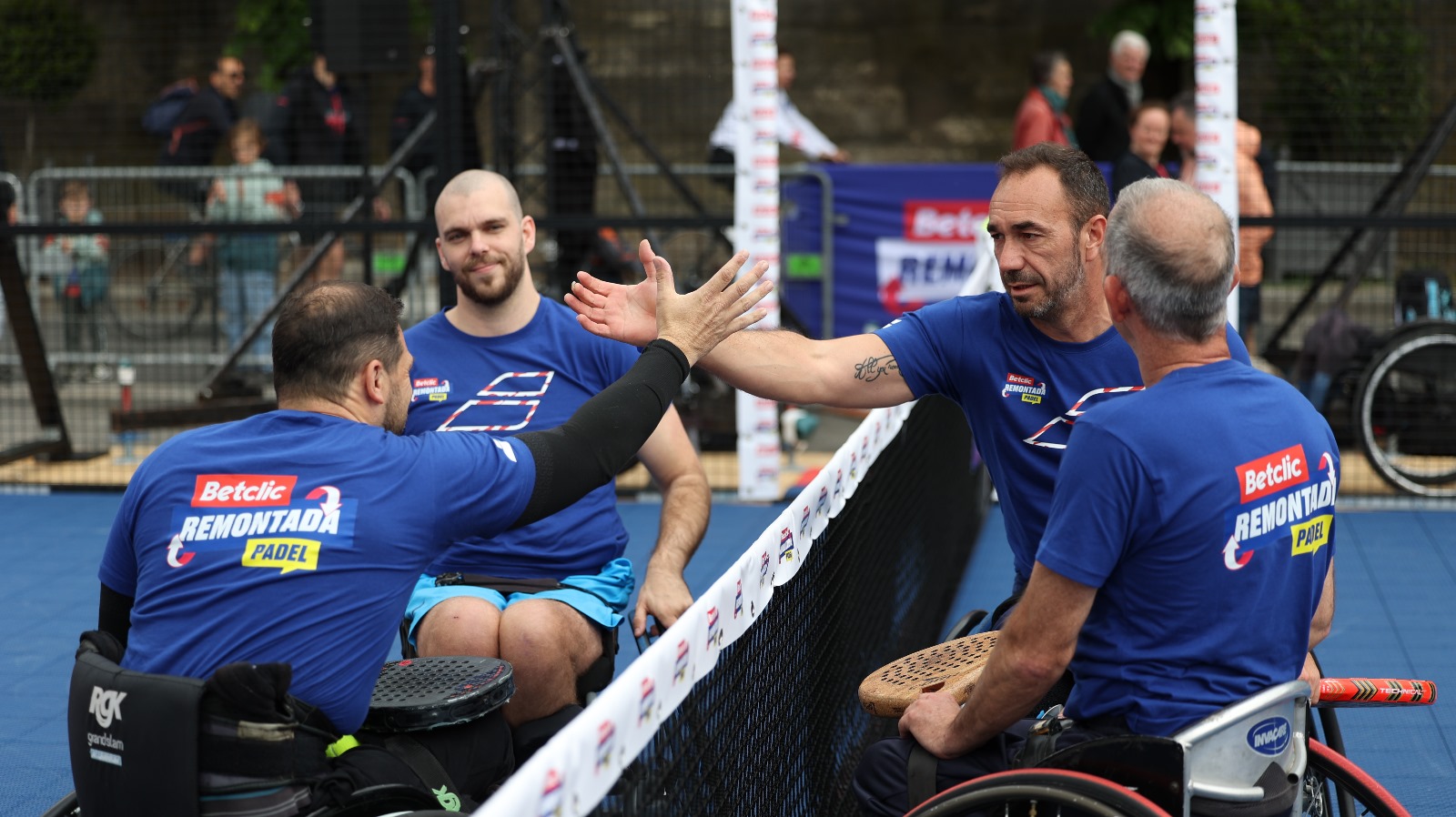 Padel armchair: France tickles Spain
Padel armchair: France tickles Spain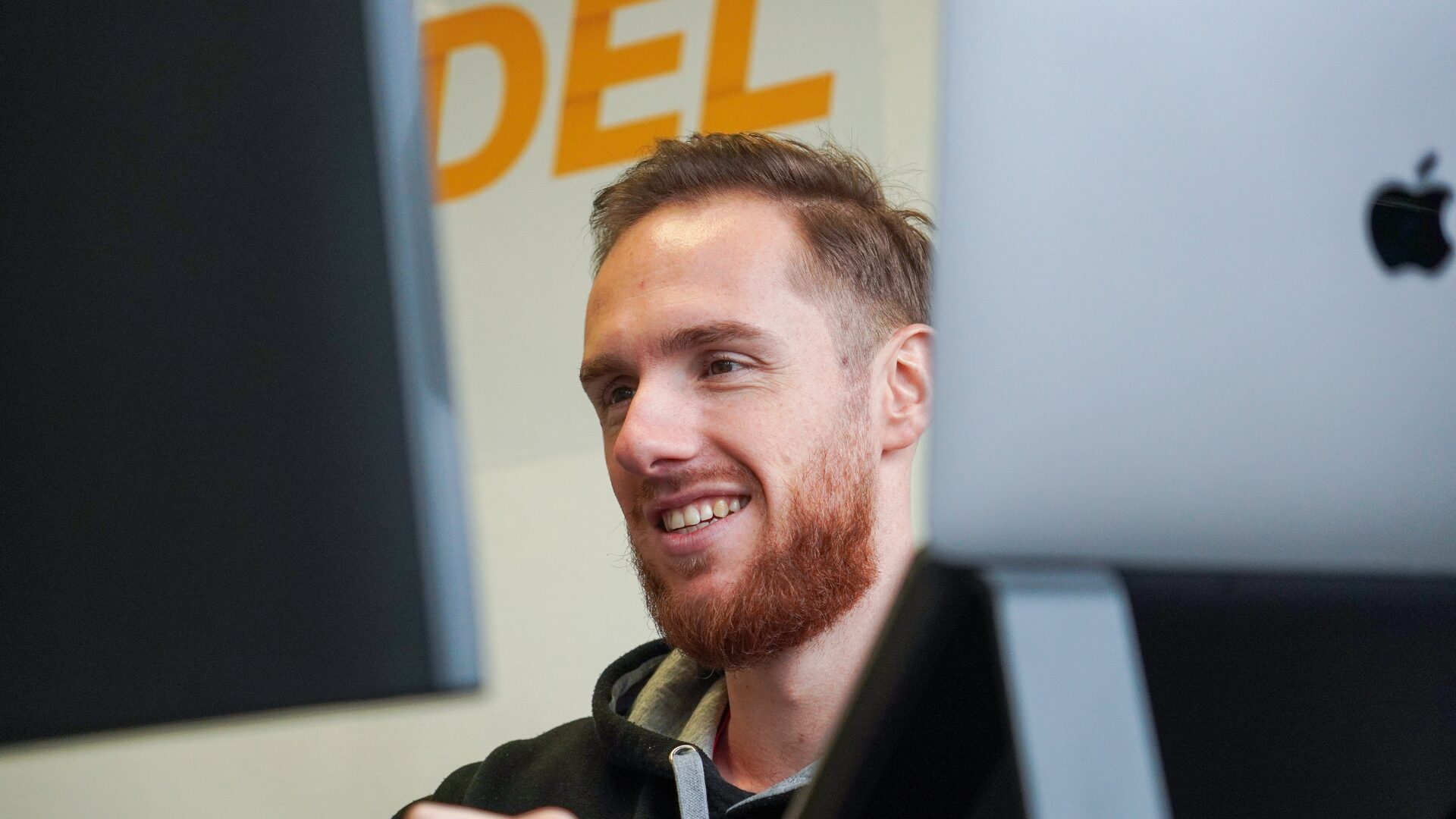 Joffrey Gilant: “In France, one in four rackets is purchased on Esprit Padel Shop!”
Joffrey Gilant: “In France, one in four rackets is purchased on Esprit Padel Shop!” Babolat : "The padel goes beyond badminton, Lebron’s pala makes Par 3s all by itself…”
Babolat : "The padel goes beyond badminton, Lebron’s pala makes Par 3s all by itself…”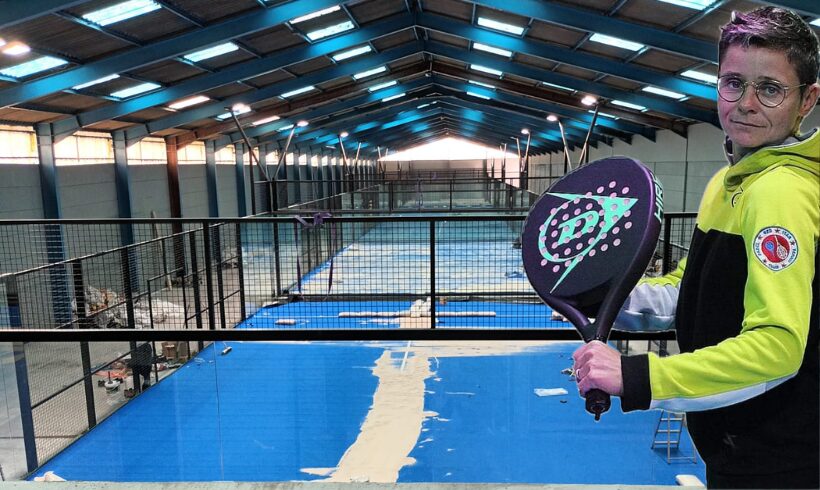 Sophie Douchet (Red Star Limoges): “Respond effectively to demand with a new complex”
Sophie Douchet (Red Star Limoges): “Respond effectively to demand with a new complex” Launch of CUPRA PADEL 2024 TOUR
Launch of CUPRA PADEL 2024 TOUR Padelreference.com: the DNA and know-how of Padel touch
Padelreference.com: the DNA and know-how of Padel touch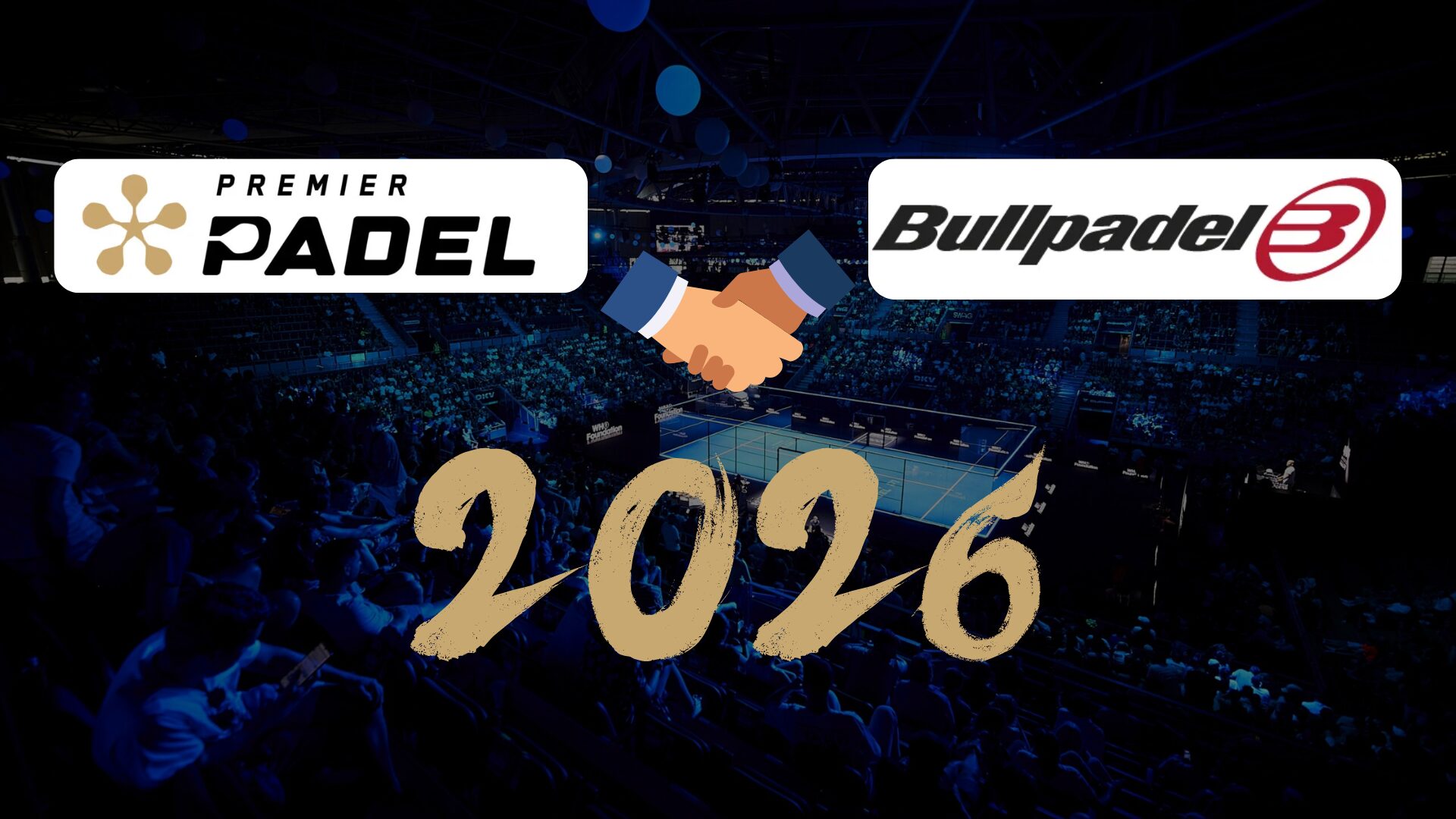 Bullpadel will provide the official rackets of Premier Padel jusqu'en 2026 !
Bullpadel will provide the official rackets of Premier Padel jusqu'en 2026 !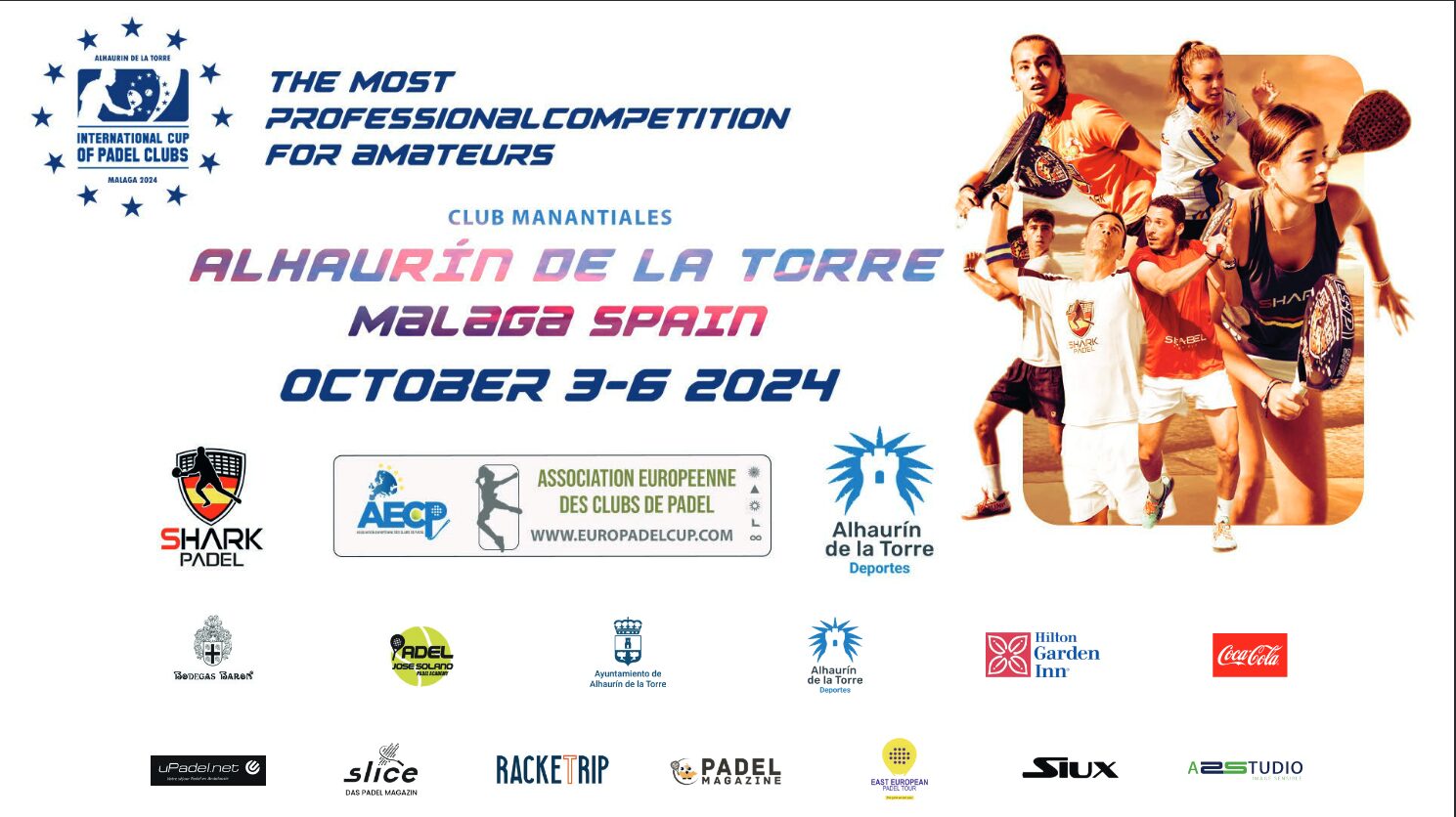 CICP 2024, already a great vintage
CICP 2024, already a great vintage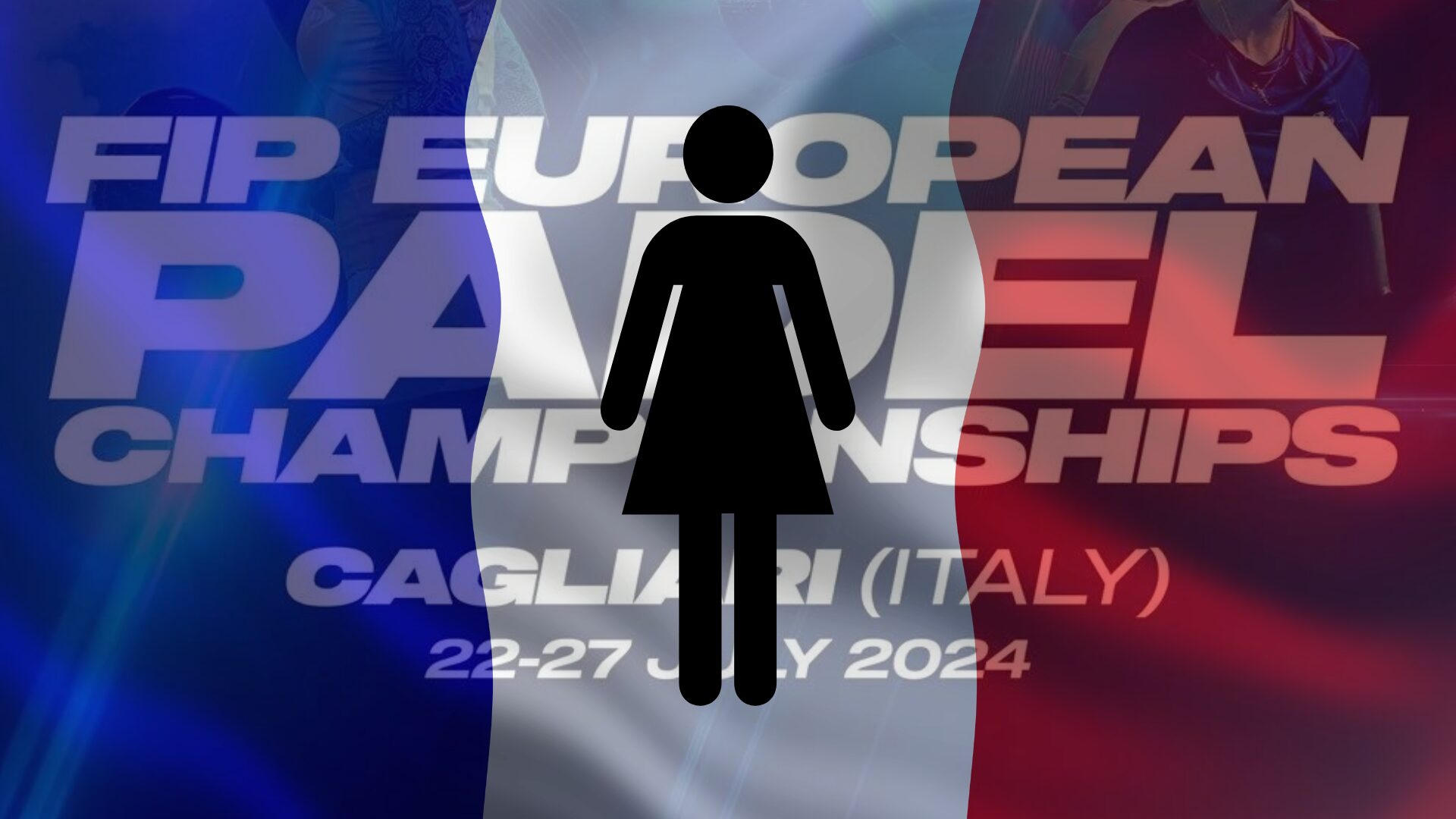 Which players will be on the French women’s team in 2024?
Which players will be on the French women’s team in 2024?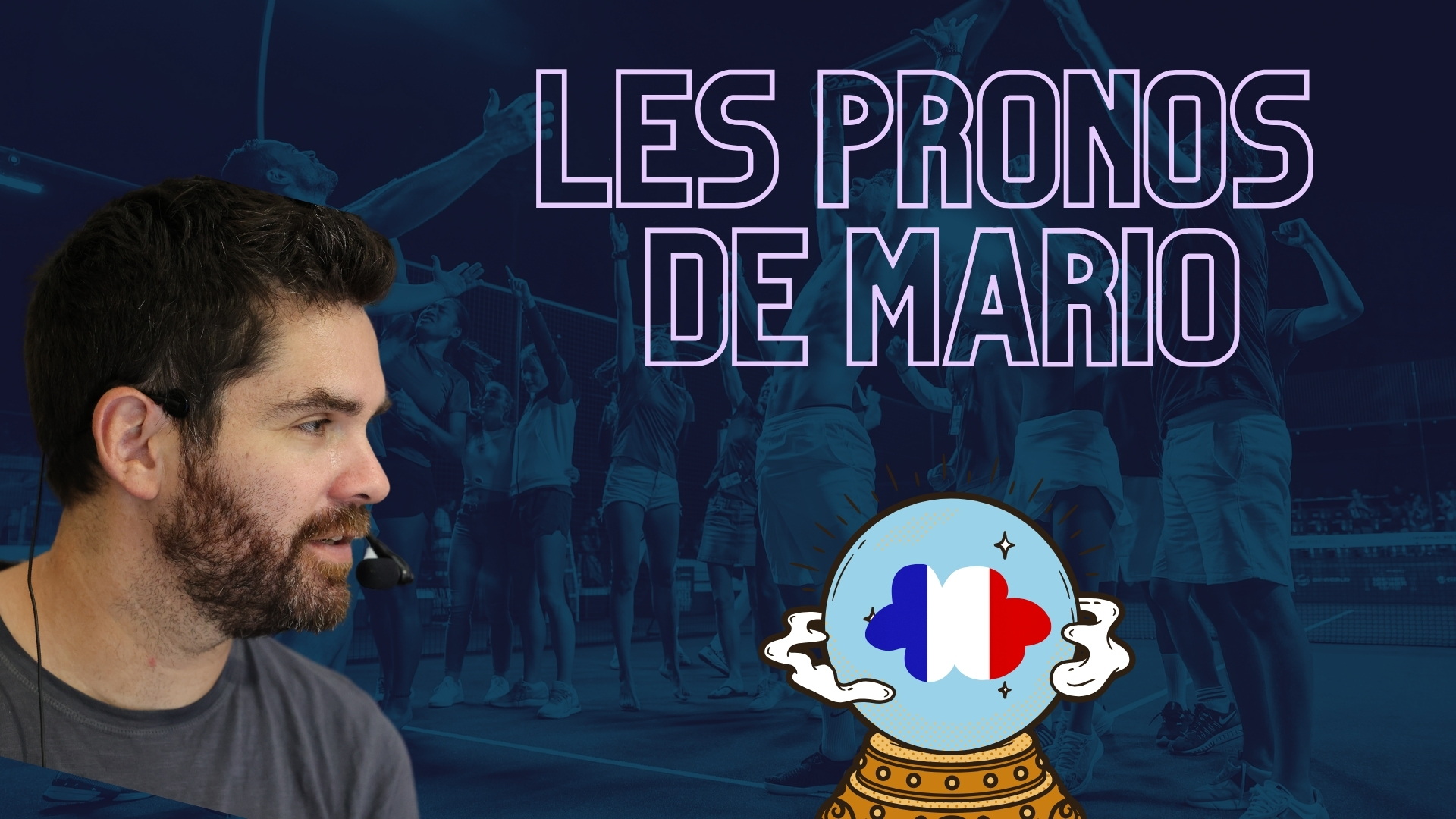 Who to represent France at Europe 2024 for men? Mario Cordero's opinion
Who to represent France at Europe 2024 for men? Mario Cordero's opinion Business plan padel : the 5 key points
Business plan padel : the 5 key points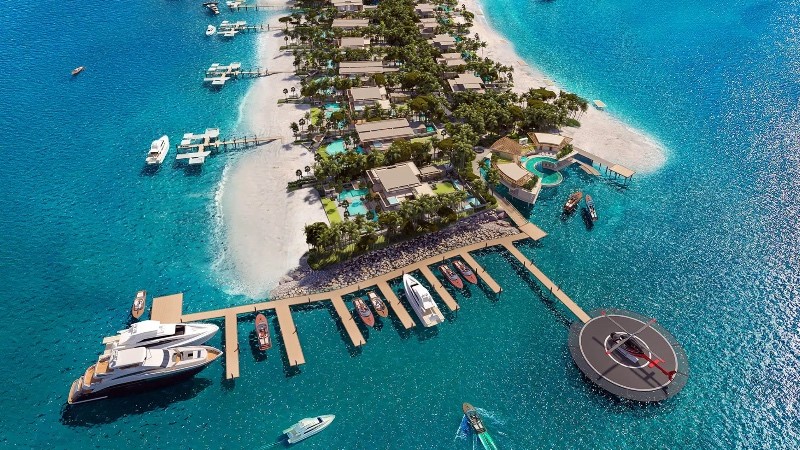 Ultra-luxurious residences with ski slopes padel floating in Dubai
Ultra-luxurious residences with ski slopes padel floating in Dubai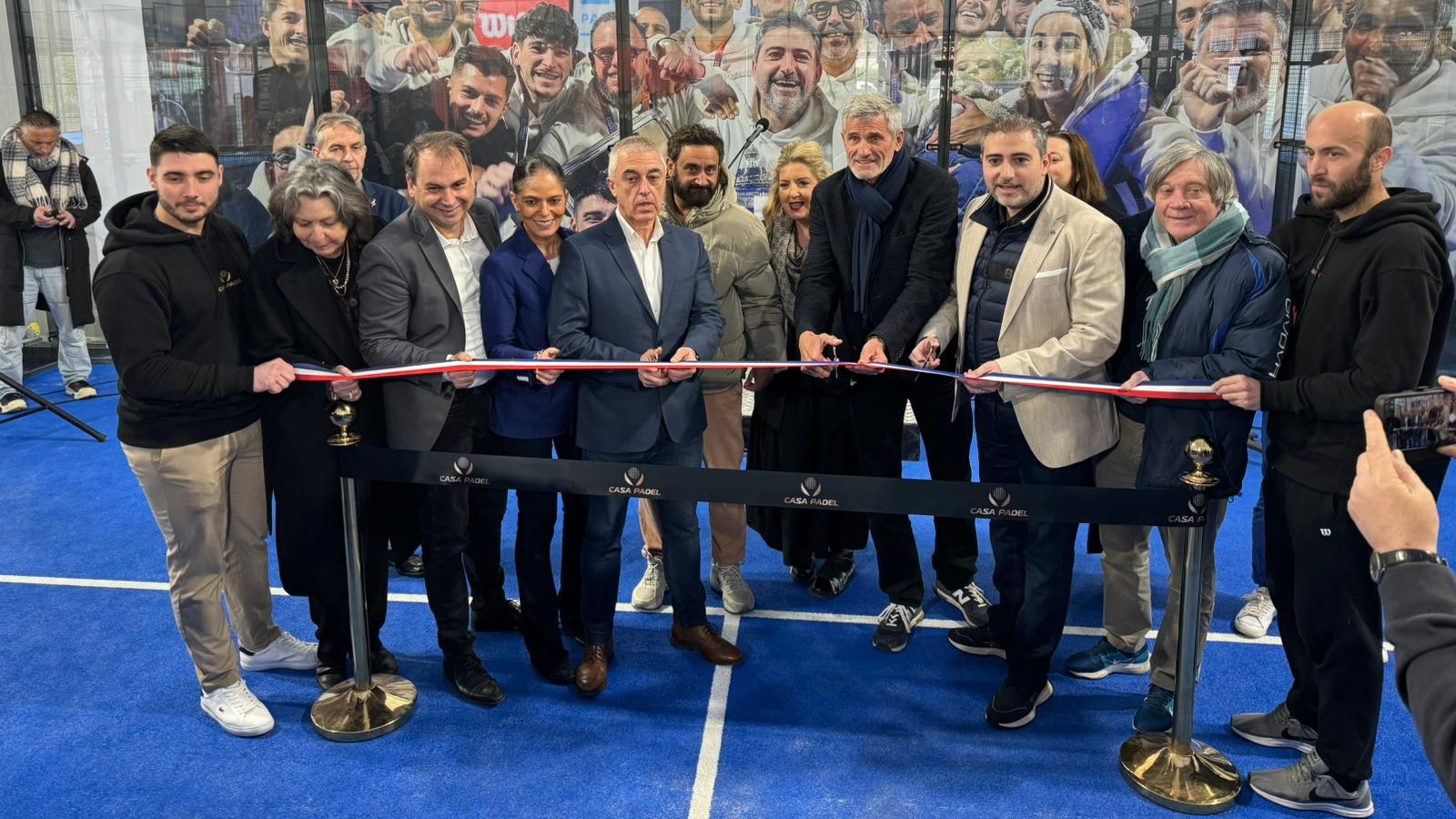 José Manuel Escin at the inauguration of Casa Padel DOS: “Finally, and thank you!”
José Manuel Escin at the inauguration of Casa Padel DOS: “Finally, and thank you!”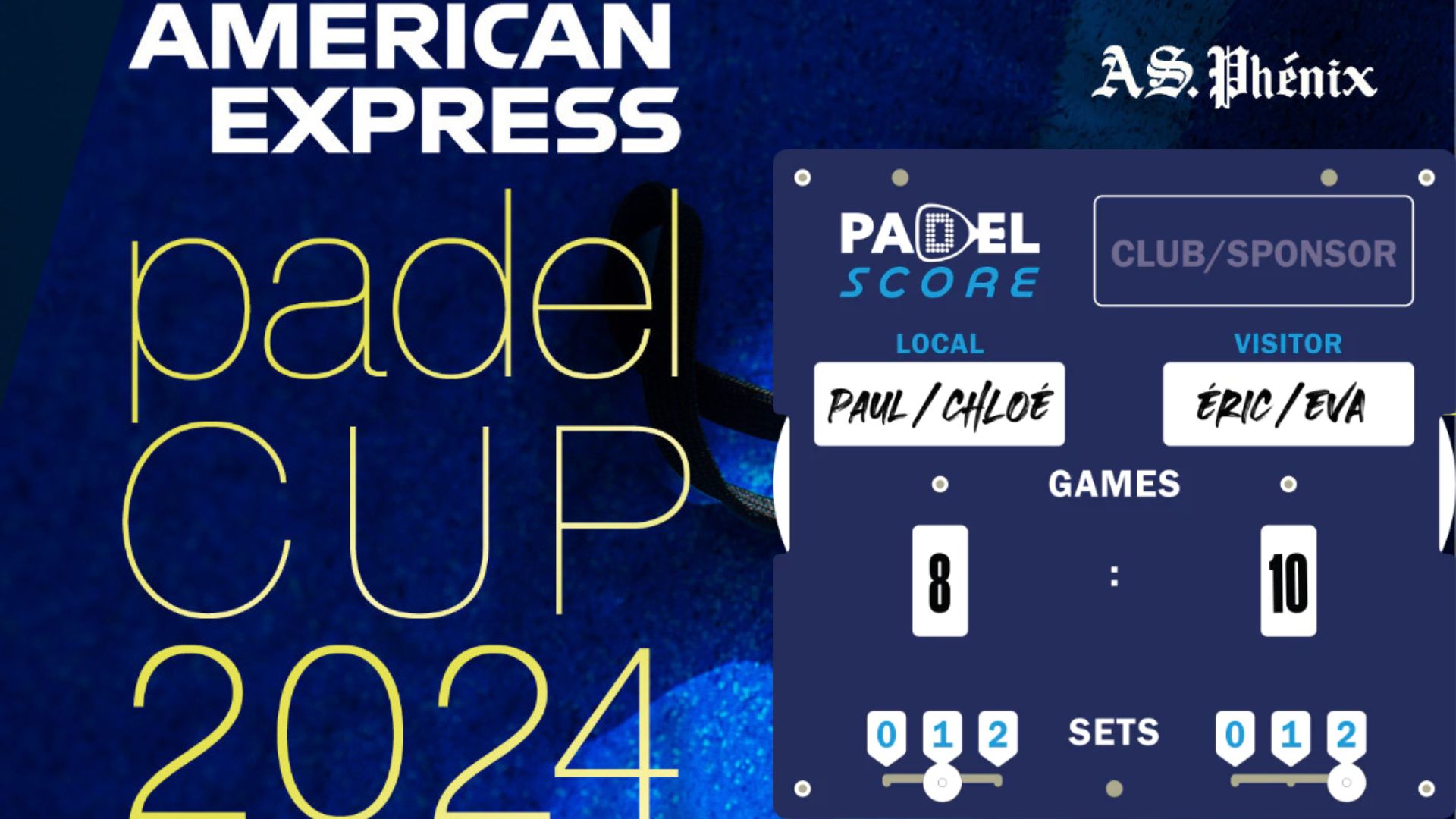 Padel Score comes to Tahiti for American Express Padel Cup!
Padel Score comes to Tahiti for American Express Padel Cup!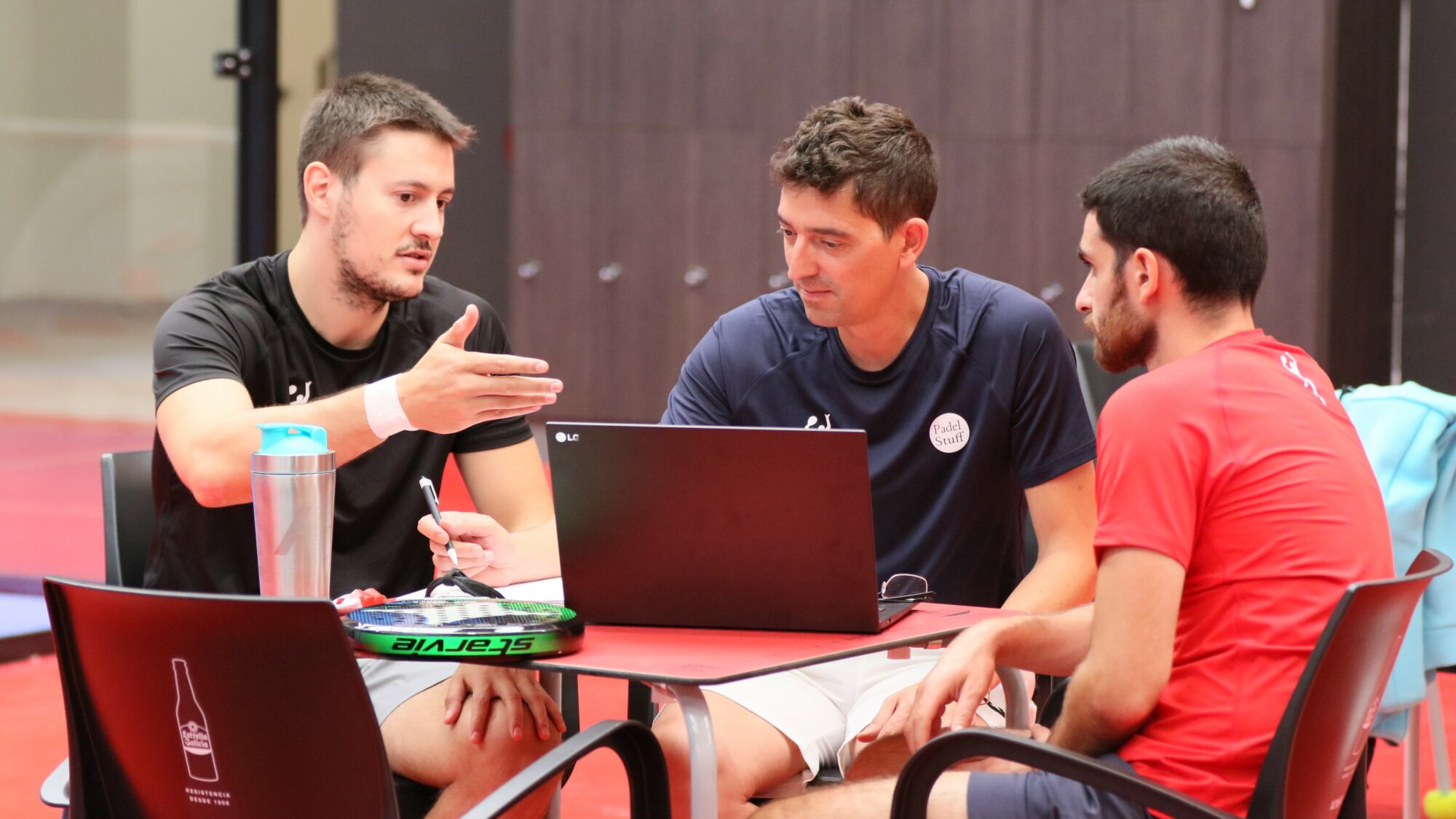 At the heart of padel – Episode 26: the keys to chiquita
At the heart of padel – Episode 26: the keys to chiquita Brussels Premier Padel P2 – the final in stats
Brussels Premier Padel P2 – the final in stats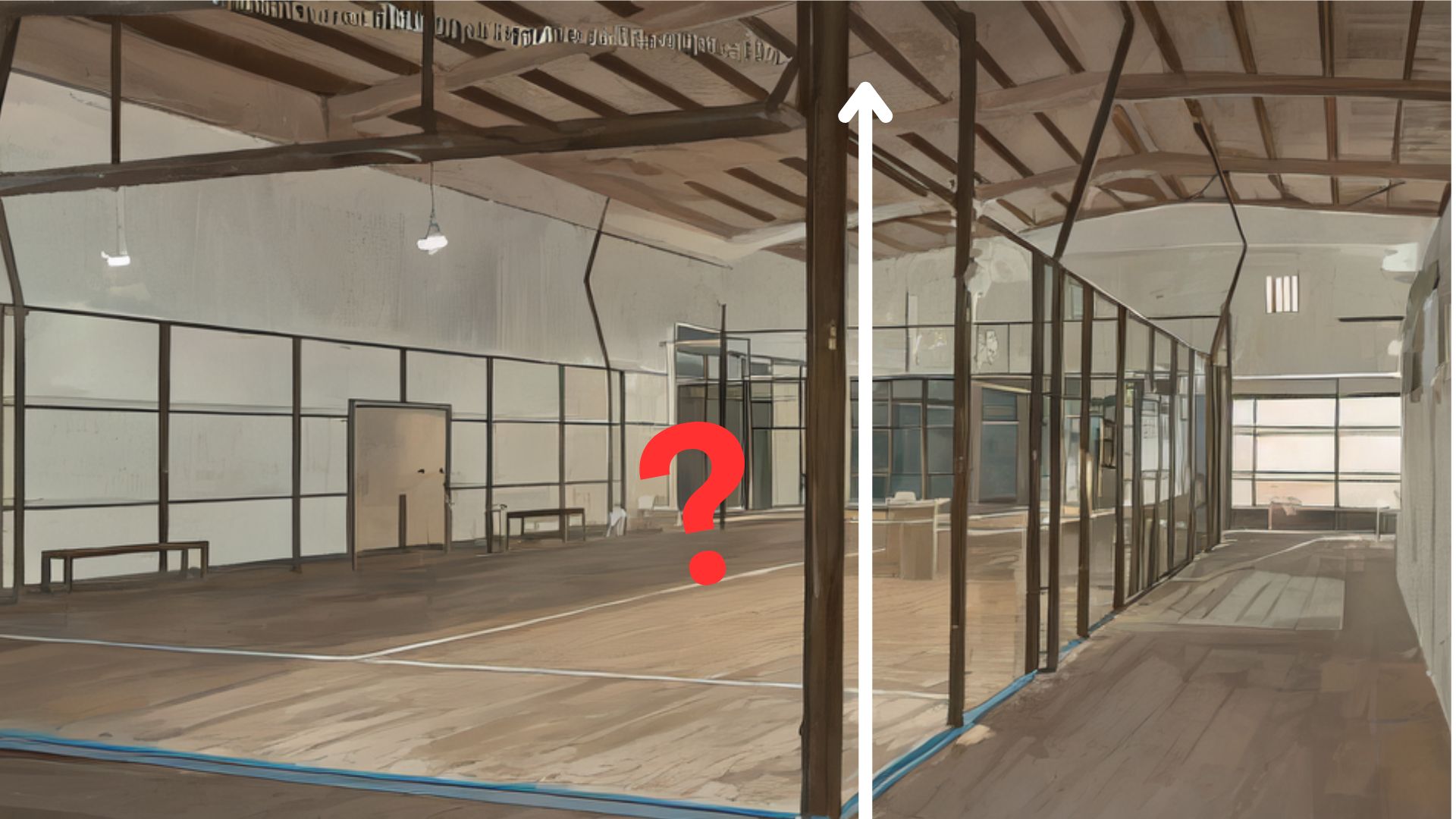 Find out everything about the dimensions of a plot of land padel
Find out everything about the dimensions of a plot of land padel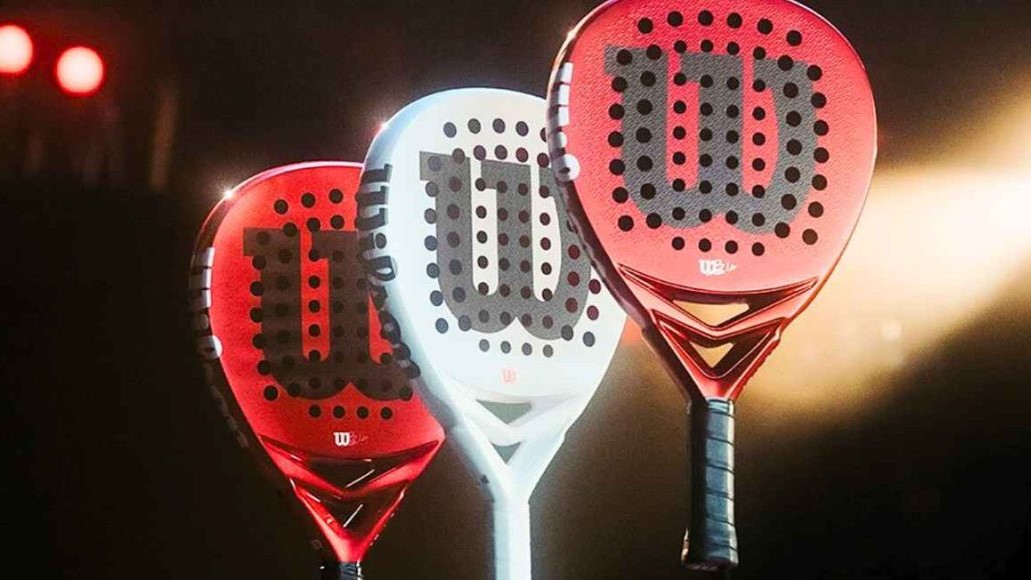 Presentation of the Wilson Bela V2.5 collection
Presentation of the Wilson Bela V2.5 collection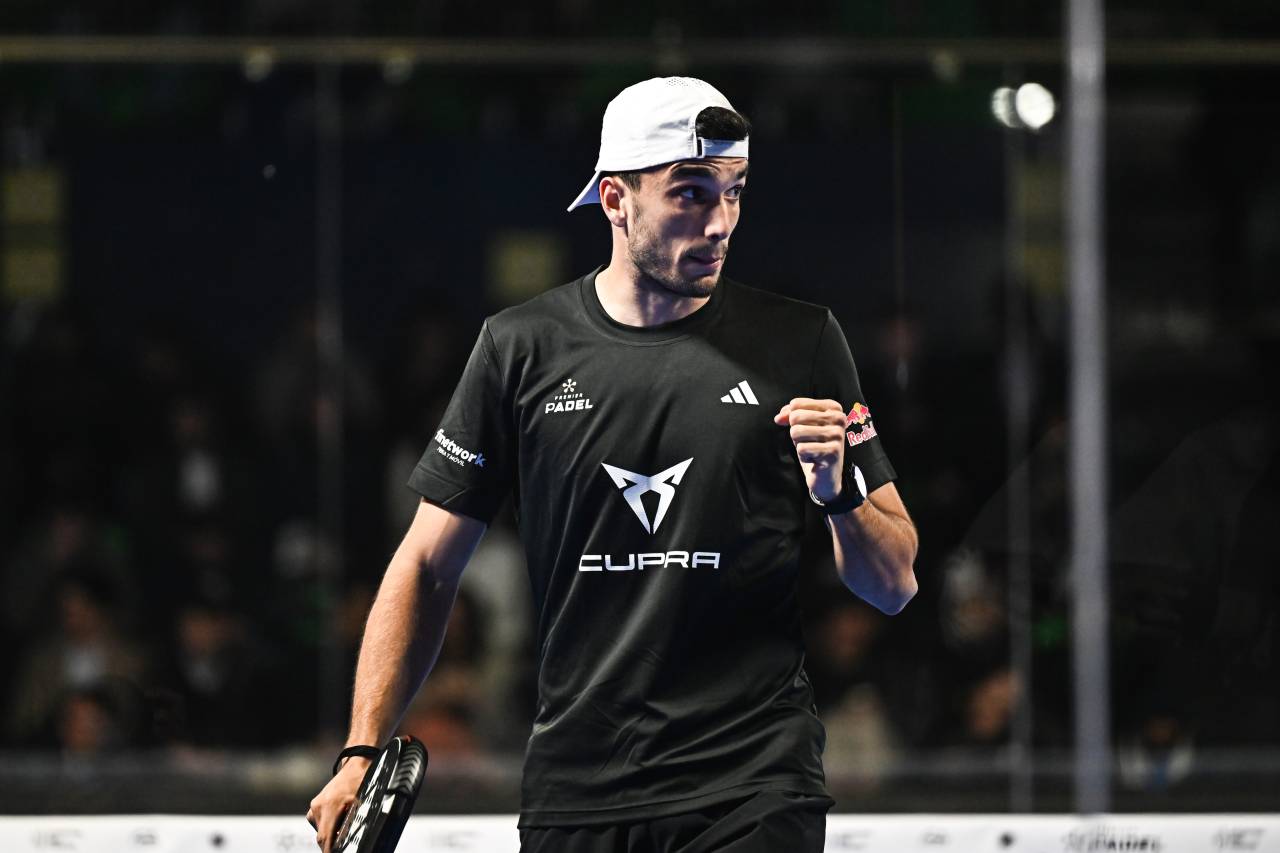 What is the “molinete”, Ale Galan’s favorite move?
What is the “molinete”, Ale Galan’s favorite move?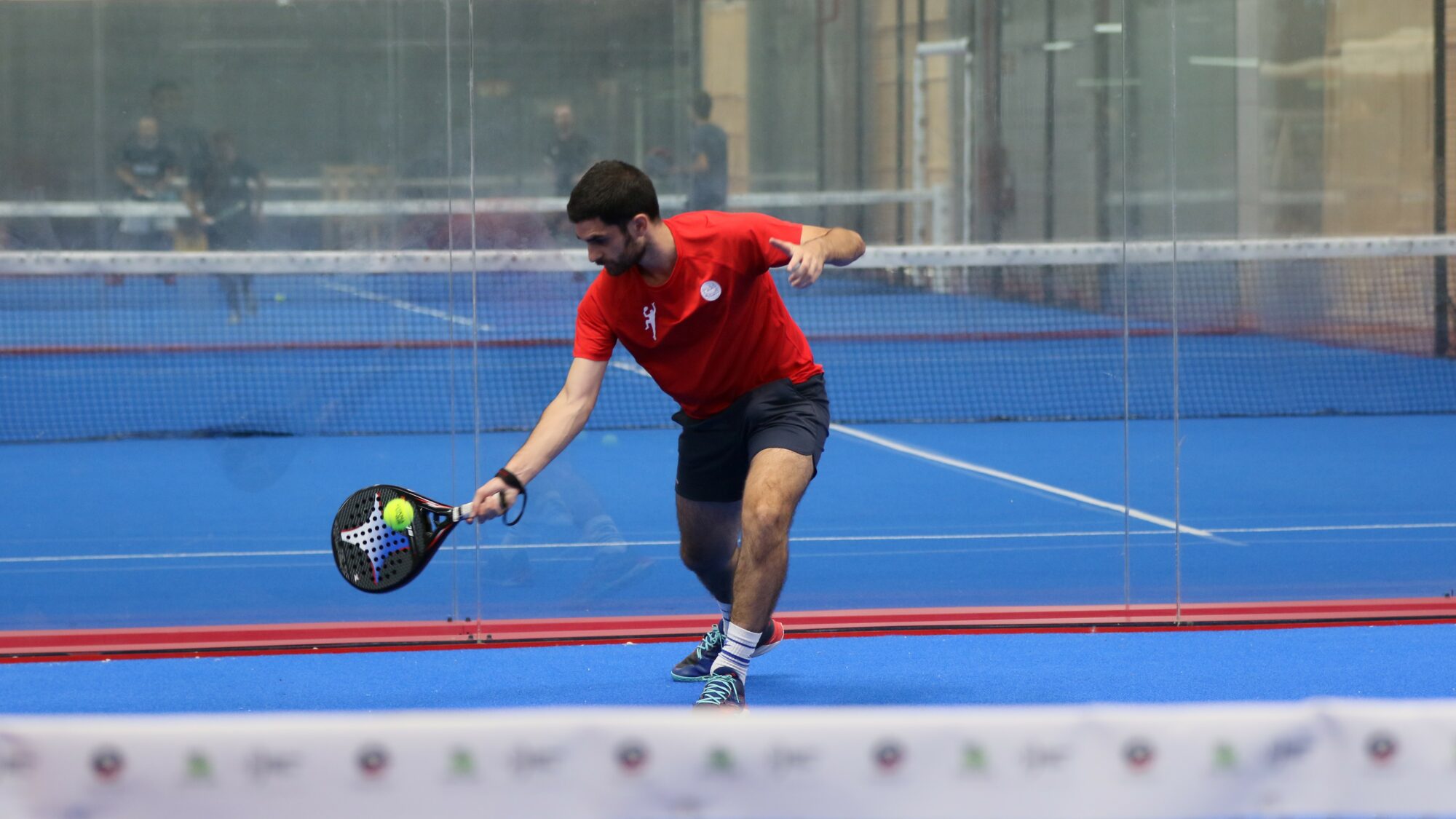 At the heart of padel – Episode 26: the keys to chiquita
At the heart of padel – Episode 26: the keys to chiquita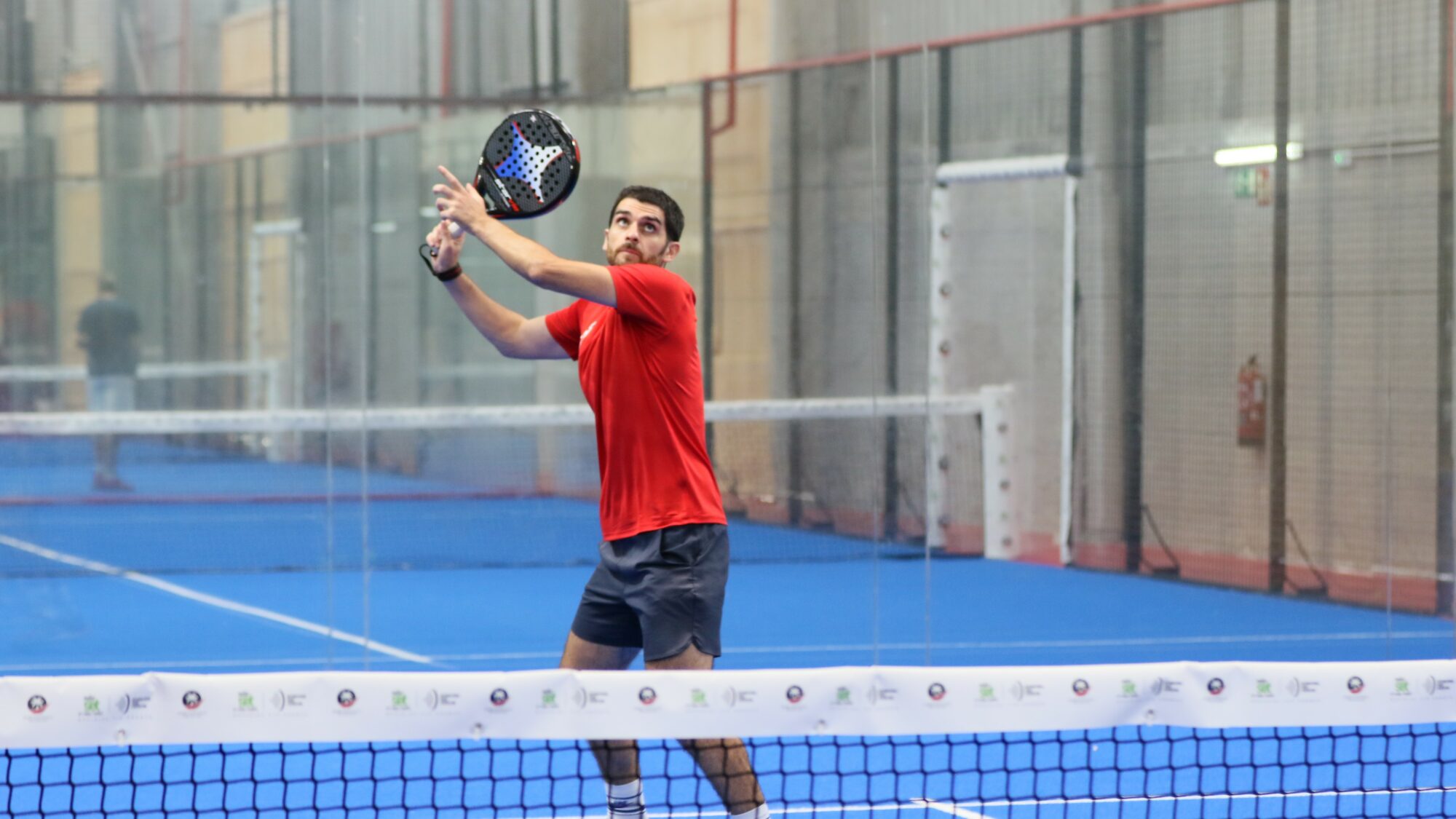 At the heart of padel – Episode 24: Paul Daulan shares the evolution of his bandeja
At the heart of padel – Episode 24: Paul Daulan shares the evolution of his bandeja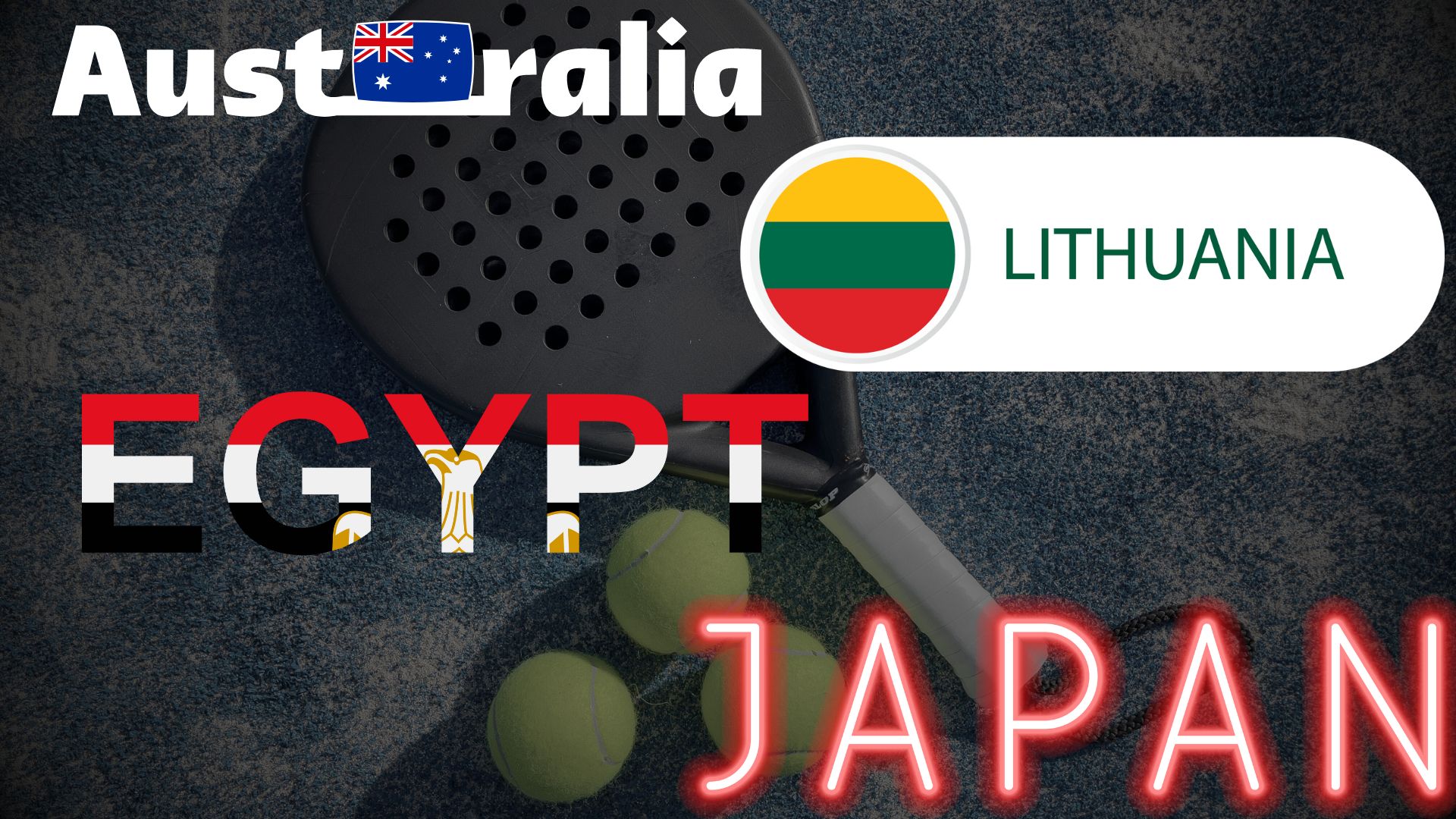 FIP Tour – Going far from Europe, THE strategy to earn points!
FIP Tour – Going far from Europe, THE strategy to earn points!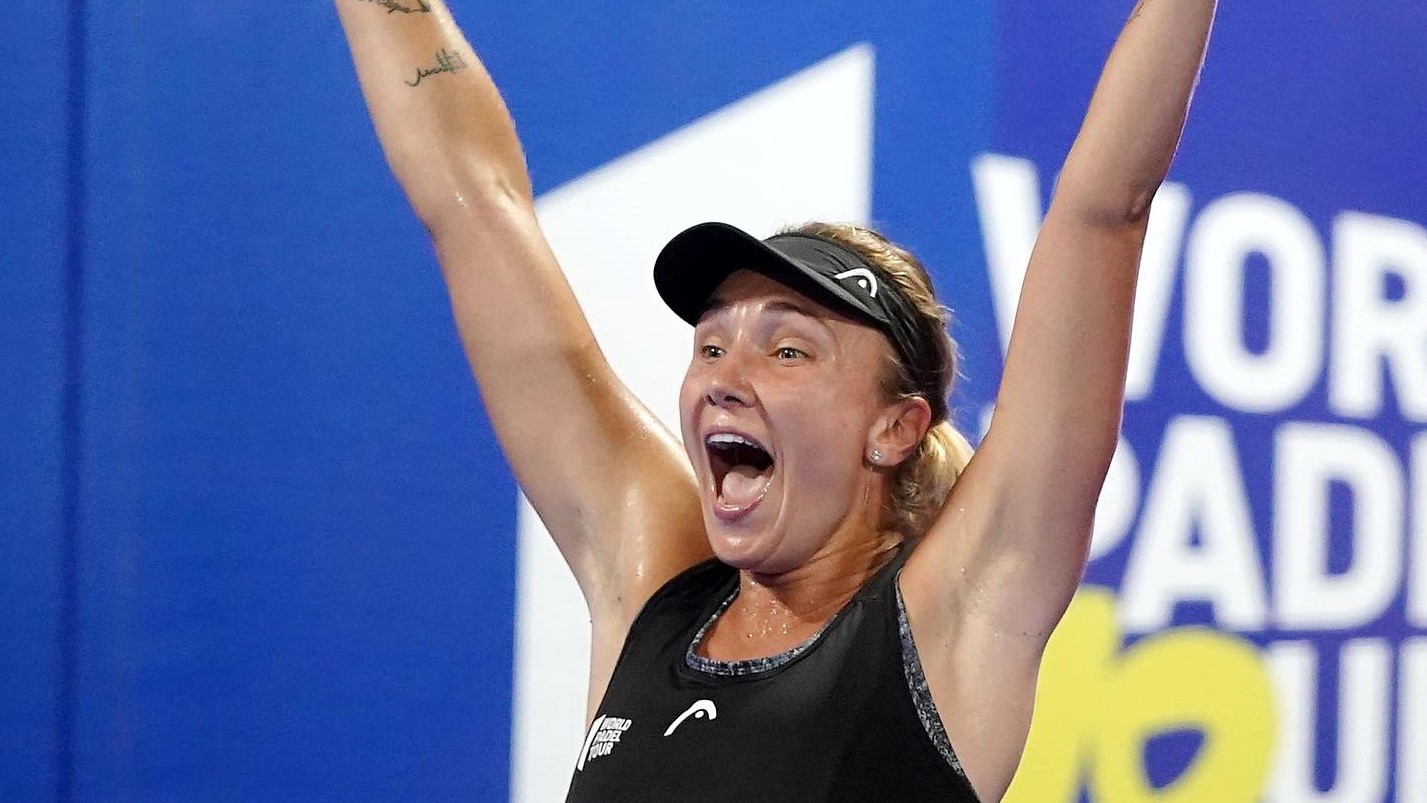 What is a good football player? padel ?
What is a good football player? padel ?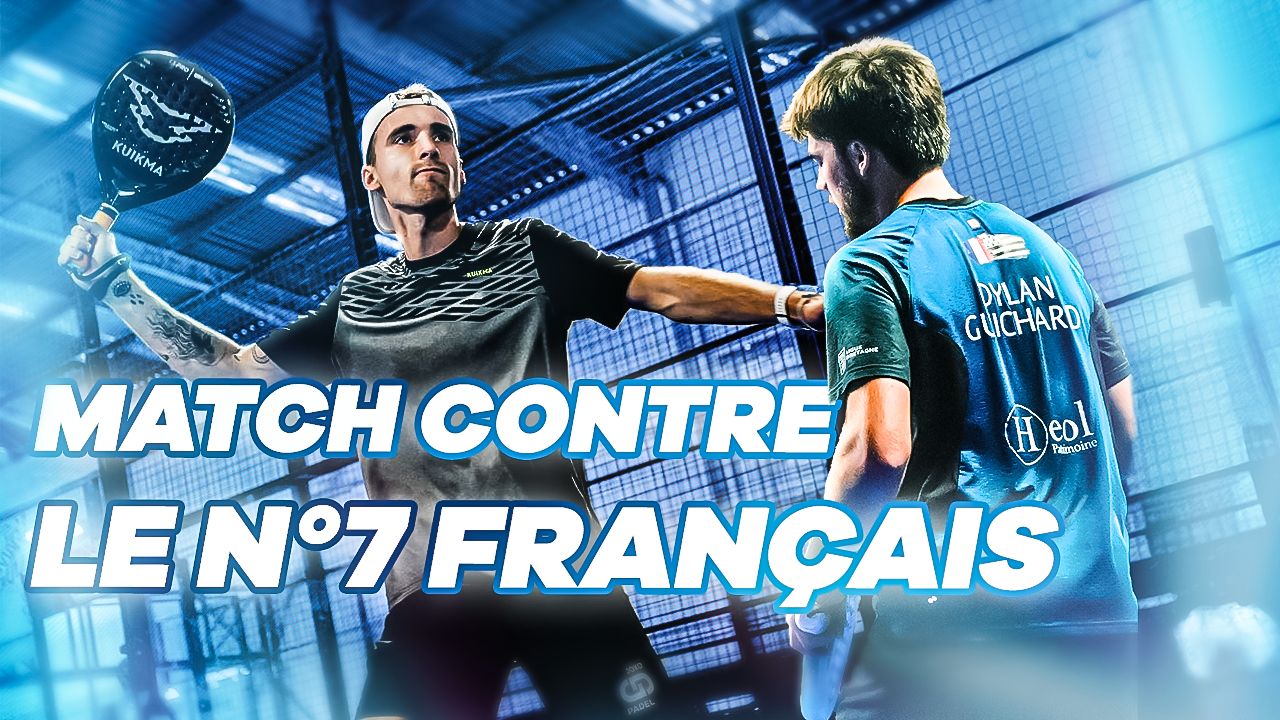 “Lefties give me headaches when I play against them!”
“Lefties give me headaches when I play against them!”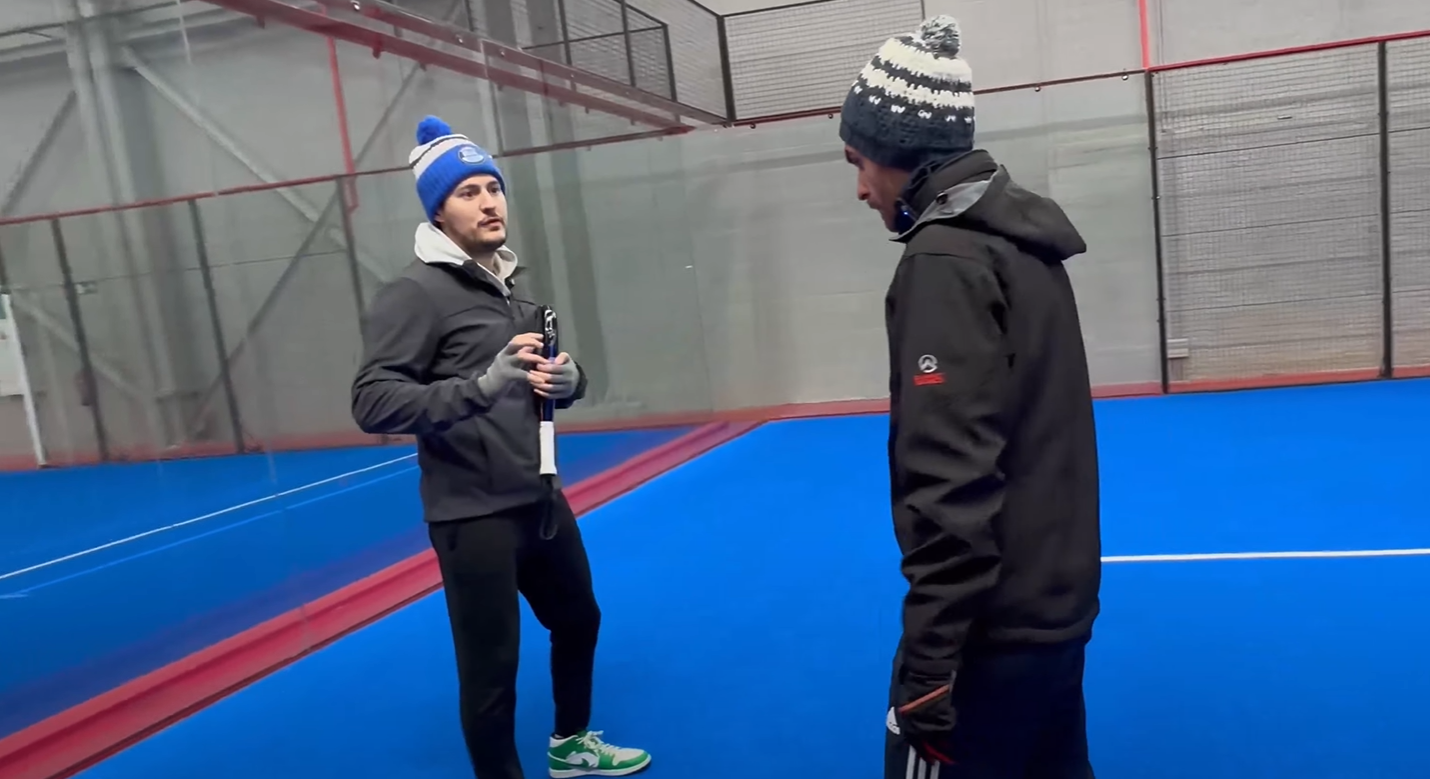 At the heart of padel – Episode 14: how to earn points in winter?
At the heart of padel – Episode 14: how to earn points in winter?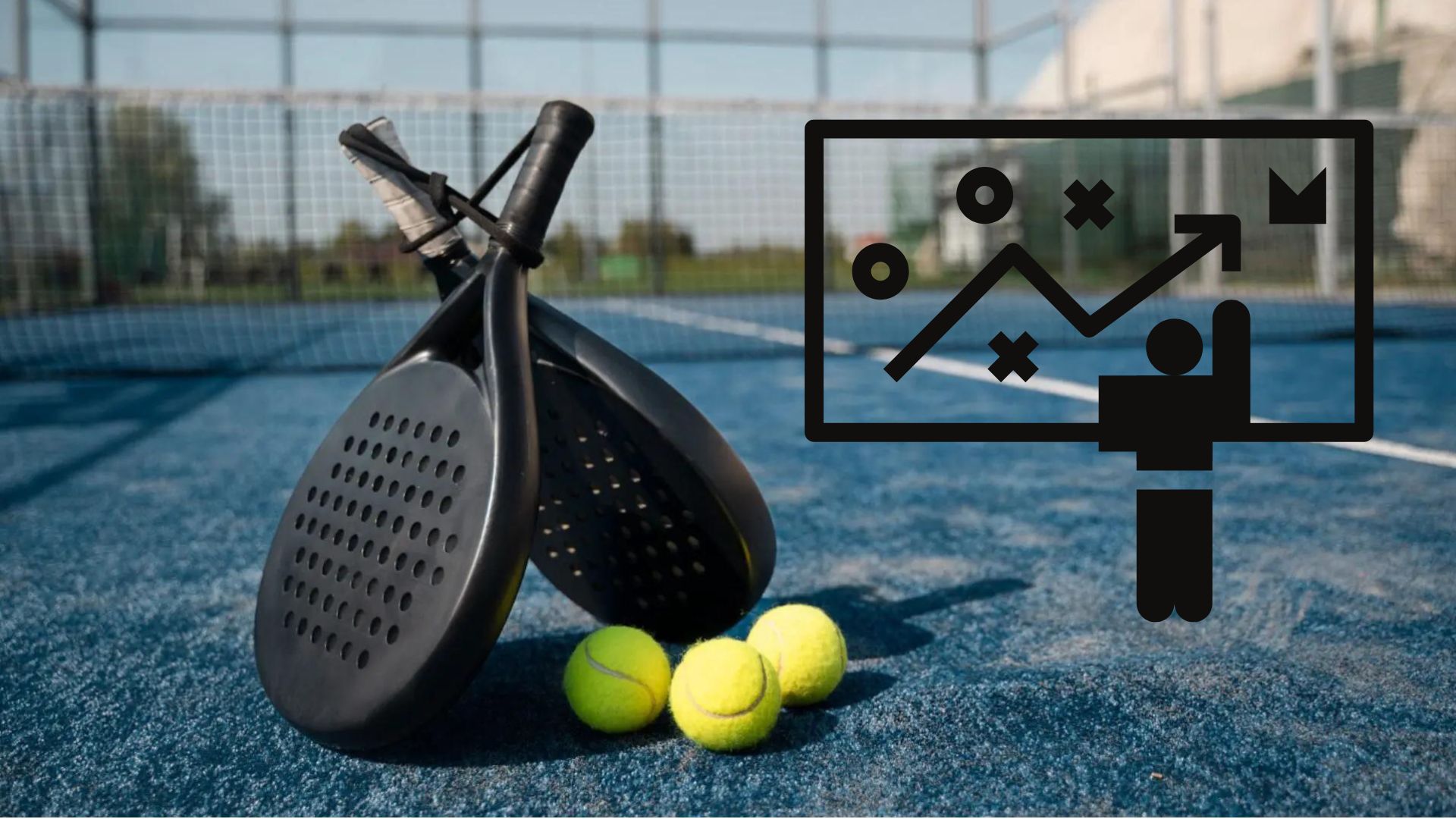 The basic tactics of padel
The basic tactics of padel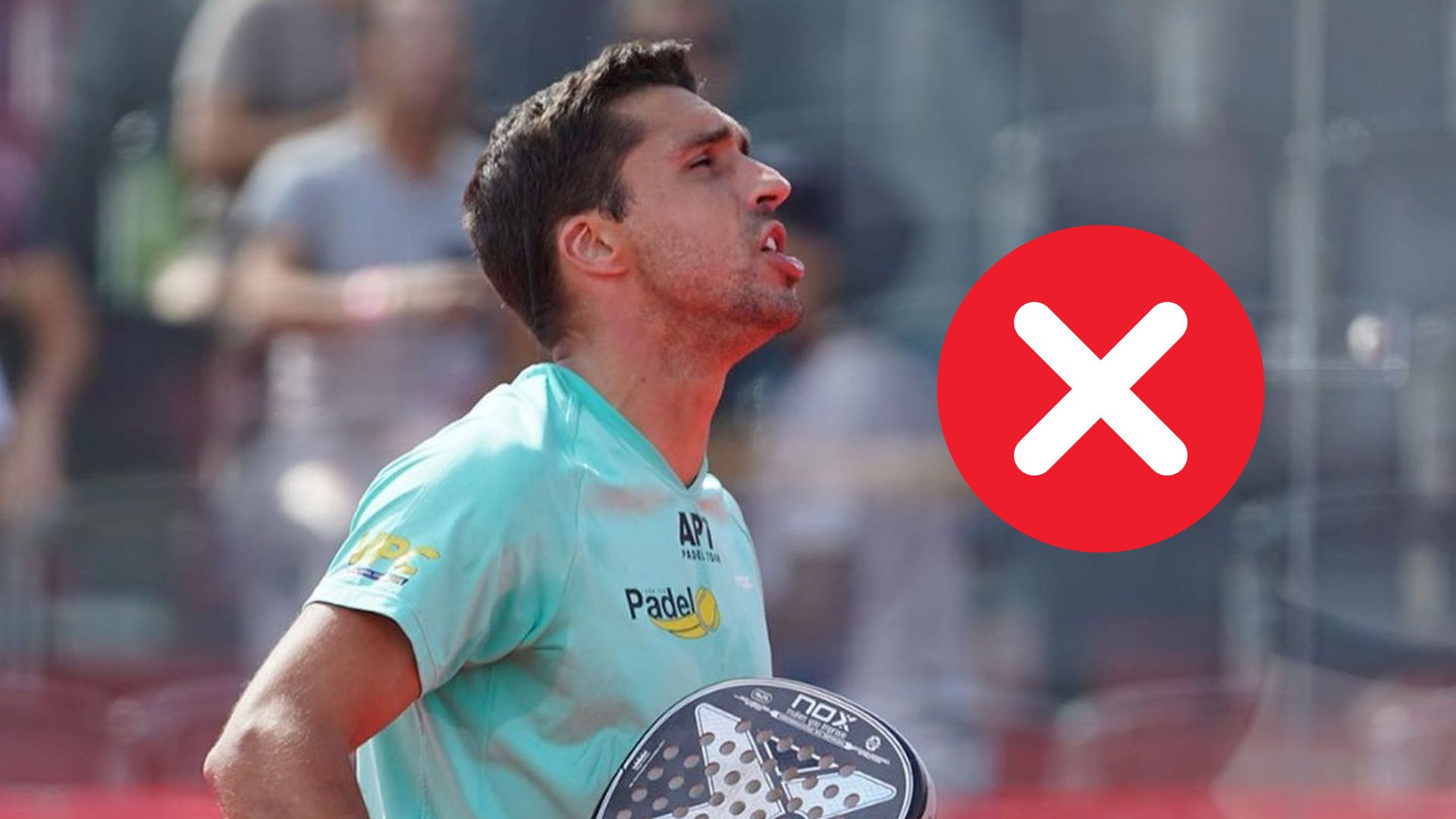 A par 4 is always a winner...even if you manage to defend it!
A par 4 is always a winner...even if you manage to defend it!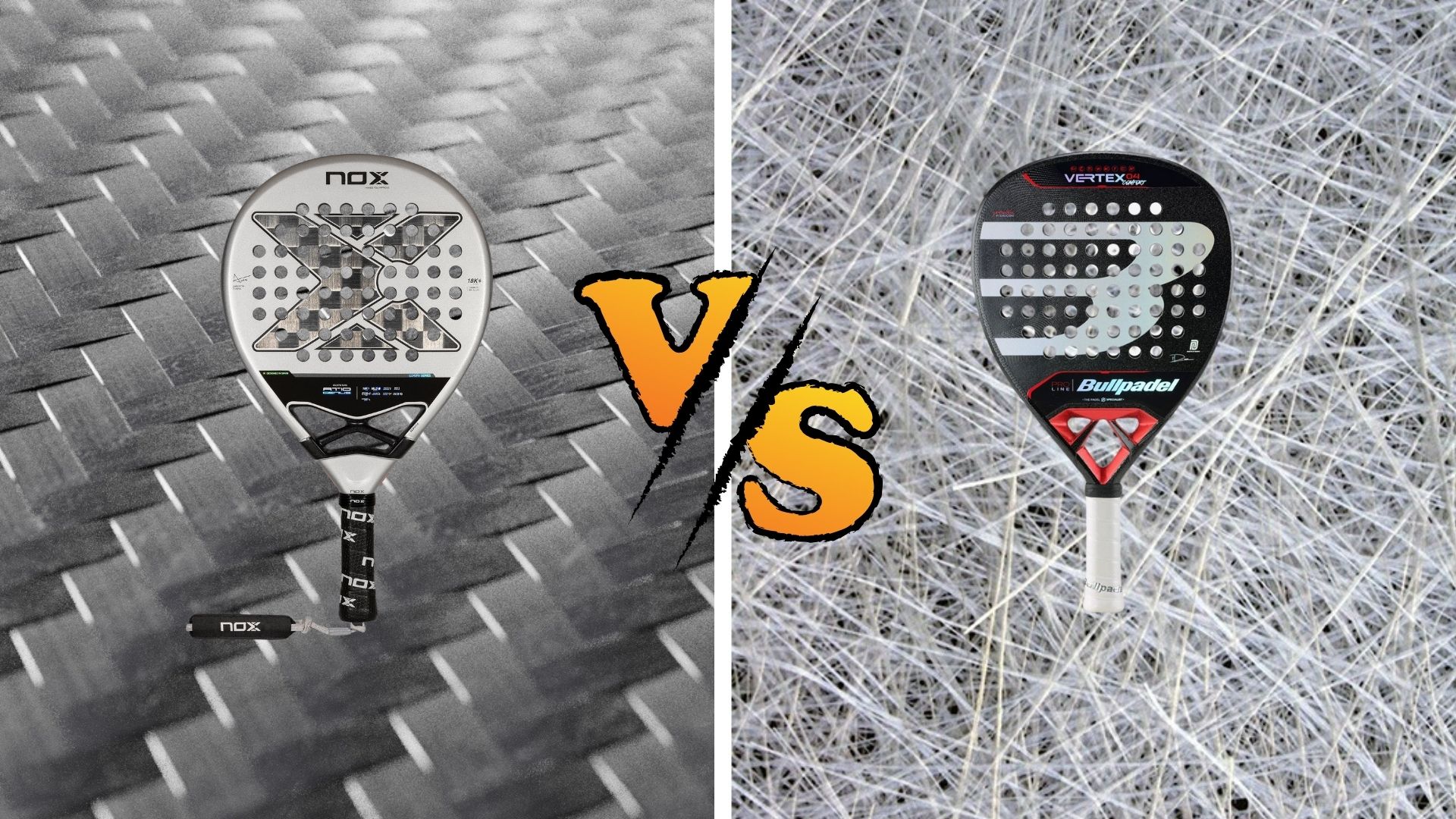 Carbon fiber VS fiberglass: what to choose?
Carbon fiber VS fiberglass: what to choose?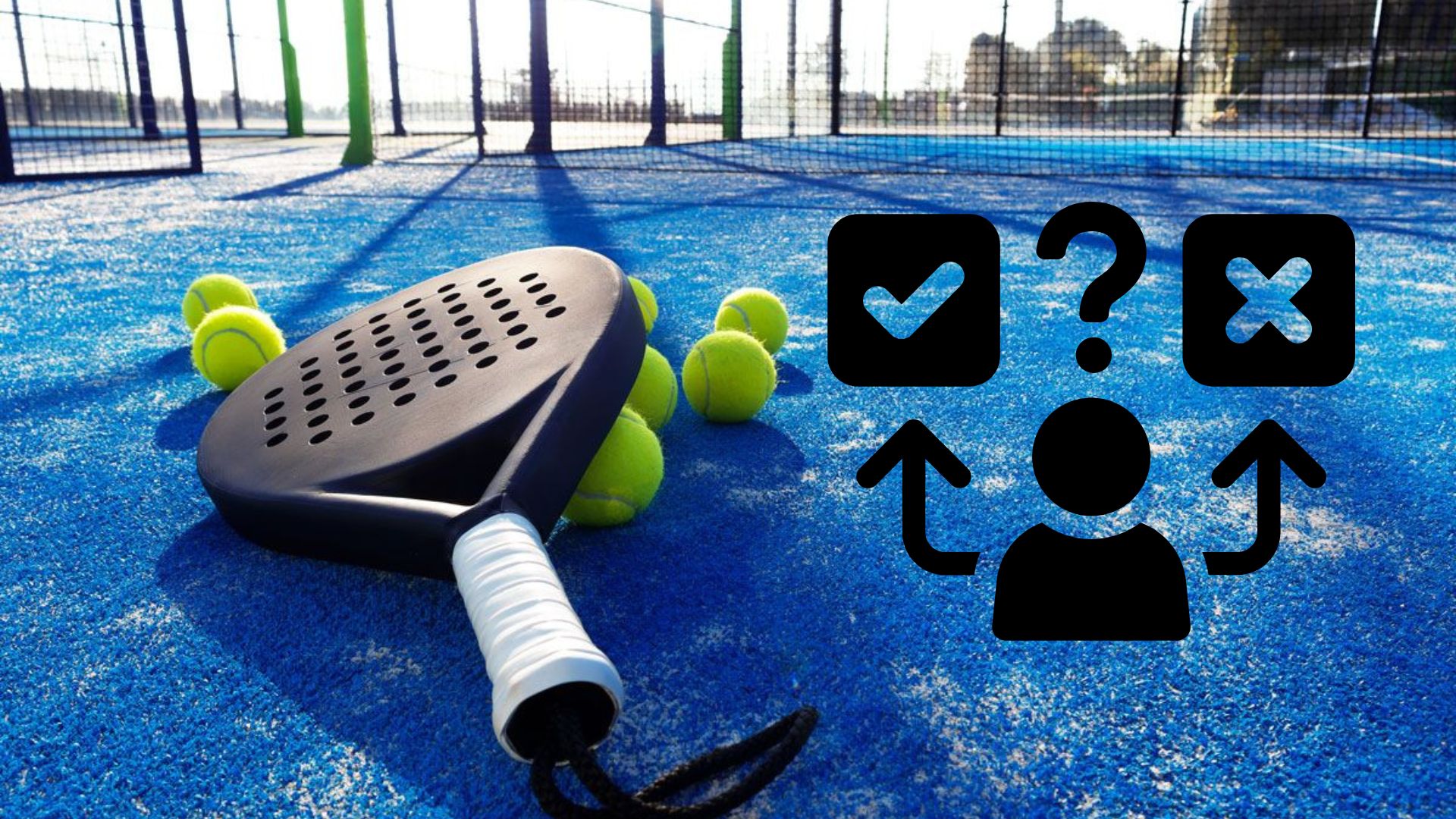 How to effectively test a racket padel ?
How to effectively test a racket padel ?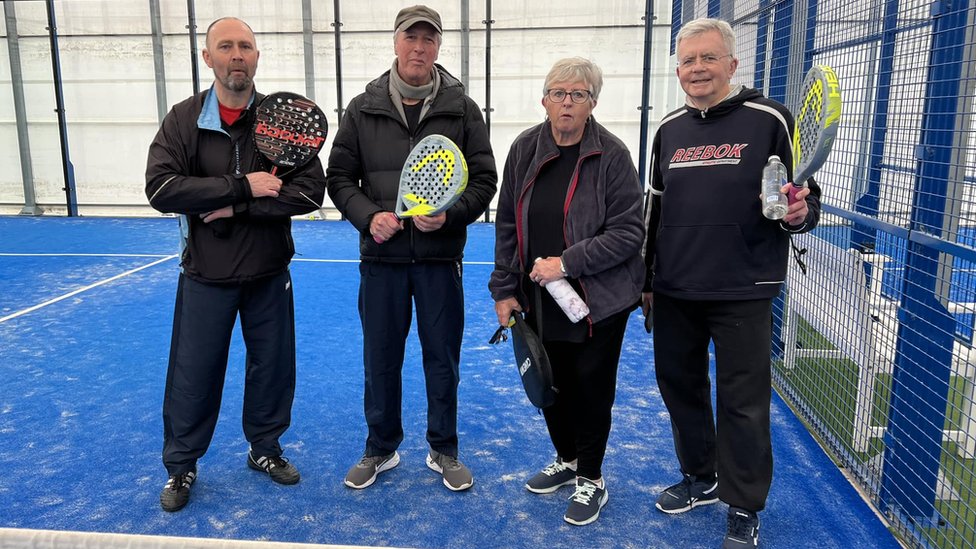 La padel to fight Parkinson's disease
La padel to fight Parkinson's disease Prohibition on playing topless Padel : the reasons
Prohibition on playing topless Padel : the reasons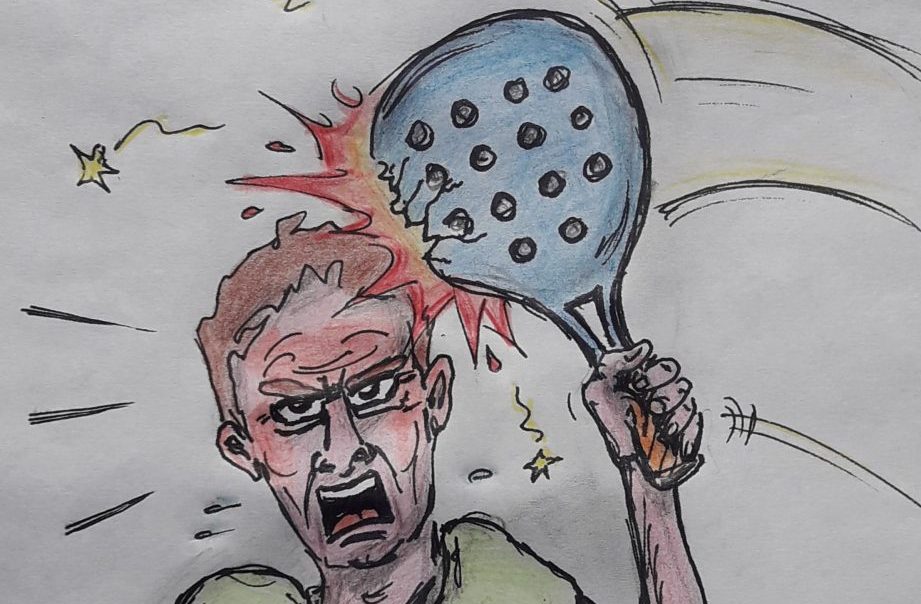 Don't play with a cracked or broken racket, your body will thank you!
Don't play with a cracked or broken racket, your body will thank you! Michel Cymes: “The padel, physically, it’s serious!”
Michel Cymes: “The padel, physically, it’s serious!” Our Top 10 training courses padel in France and Europe
Our Top 10 training courses padel in France and Europe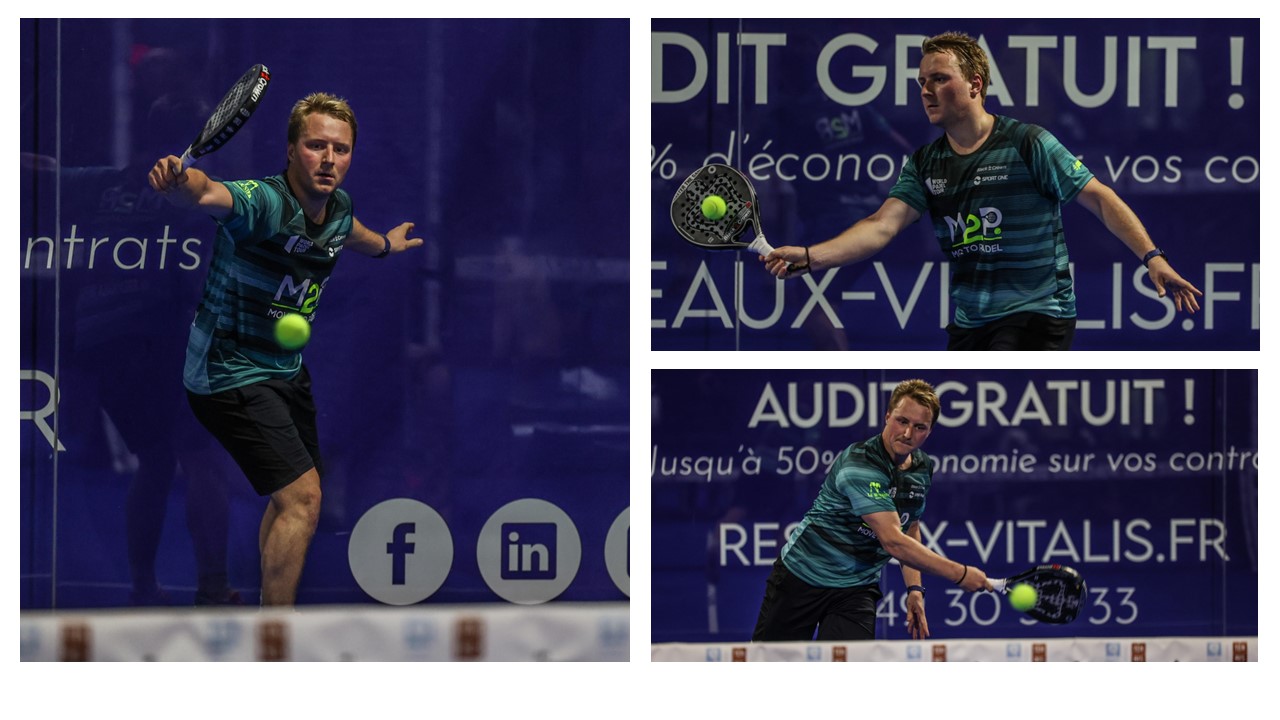 Jeremy Gala: “Promote the padel among young people in Belgium remains a challenge”
Jeremy Gala: “Promote the padel among young people in Belgium remains a challenge” The French Touch Academy organizes its selection day Padel-Study
The French Touch Academy organizes its selection day Padel-Study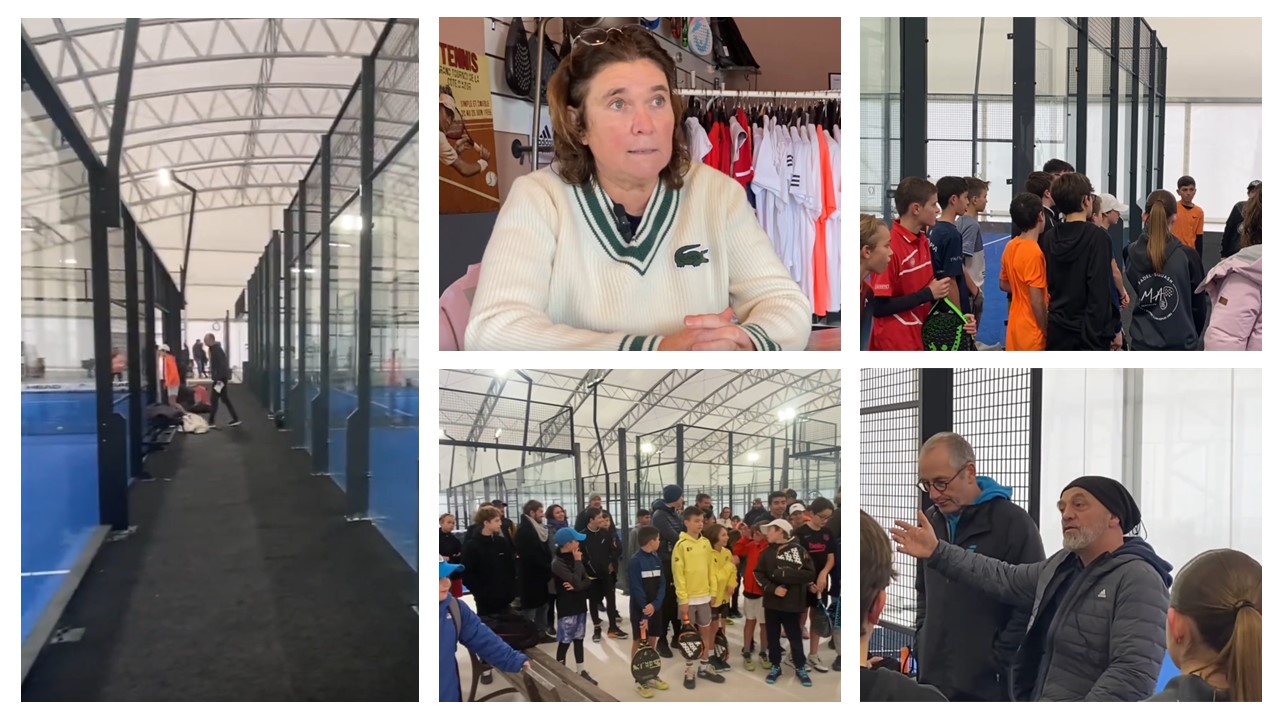 Report on the detection and training of younger generations
Report on the detection and training of younger generations